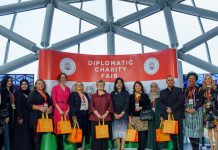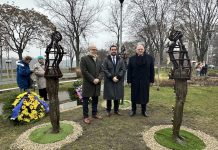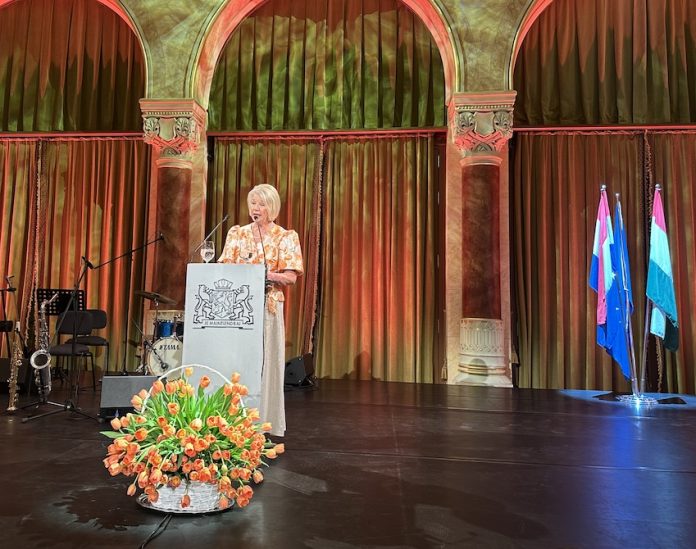“Democracy, as we know all too well, is not a destination – it is a train in motion”
Edited by Anna Popper
King’s Day (Koningsdag) is the national holiday of the Kingdom of the Netherlands, celebrated annually on 27 April in honour of the birthday of His Majesty King Willem-Alexander. Upon his accession to the throne in 2013, he became the first male monarch of the Netherlands in 123 years, following a long line of reigning queens since 1890.
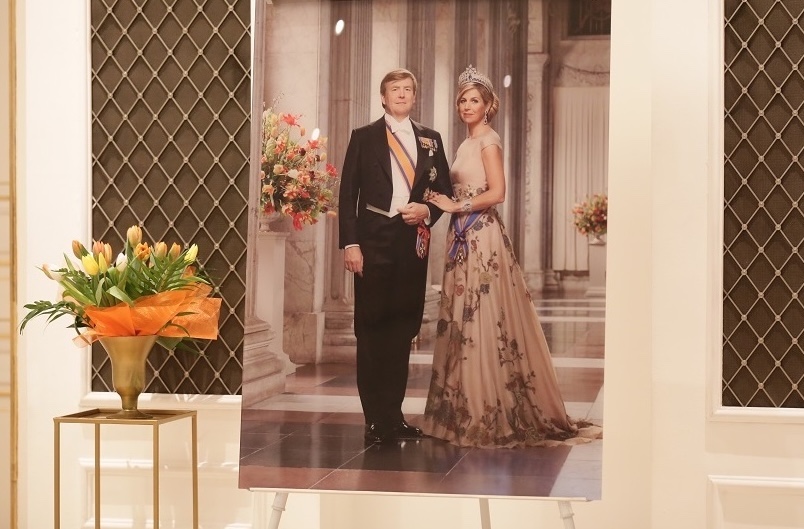
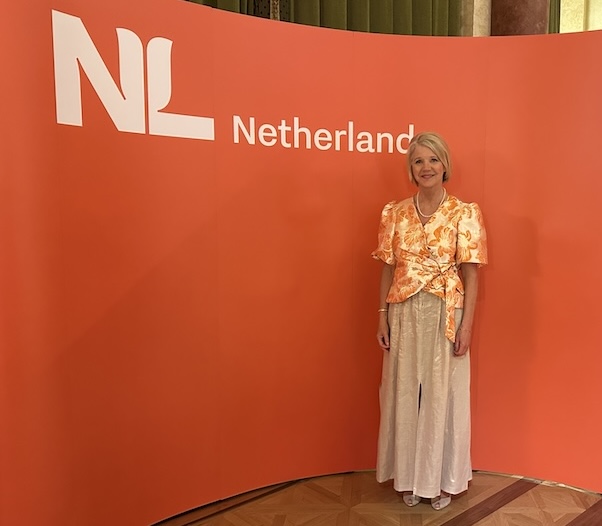
To mark this illustrious occasion, Her Excellency Désirée Bonis, Ambassador of the Kingdom of the Netherlands to Hungary, hosted a grand reception at the historic Pesti Vigadó. This romantic-style architectural landmark on the Danube has long been a symbol of cultural and social life, echoing the vibrant spirit of 19th-century Pest.
The event was attended by Hungarian government officials, members of the diplomatic corps, representatives from the business, cultural, and academic communities, along with friends and nationals of the Netherlands.
Among the distinguished invitees was Mr. János Bóka, Minister for European Affairs of Hungary, who served as Guest of Honour.
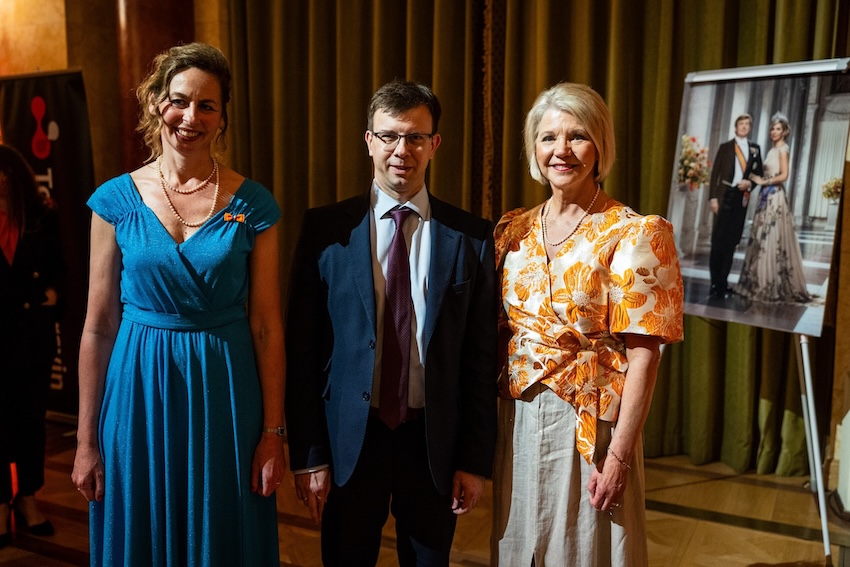
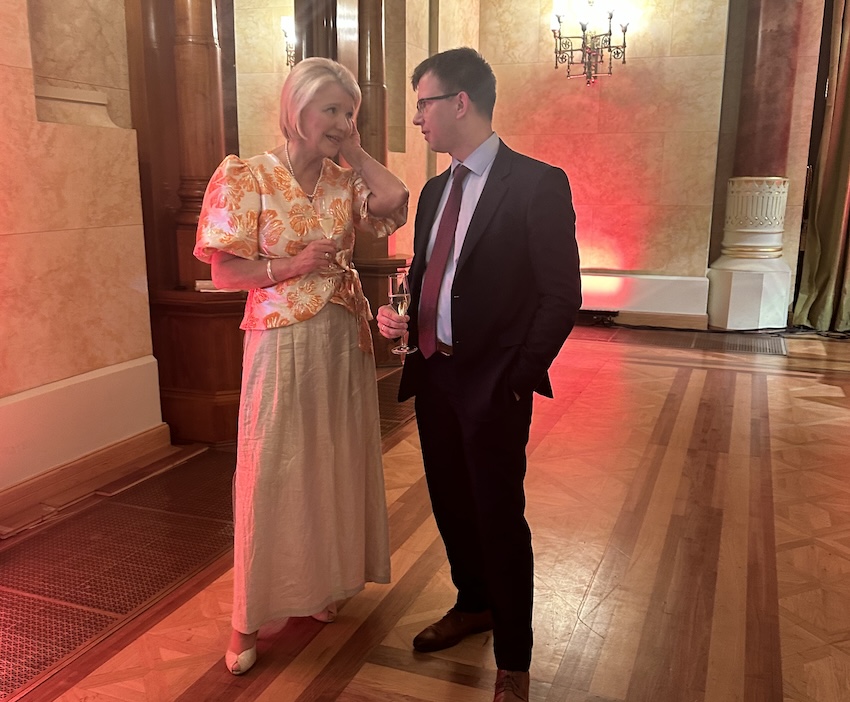
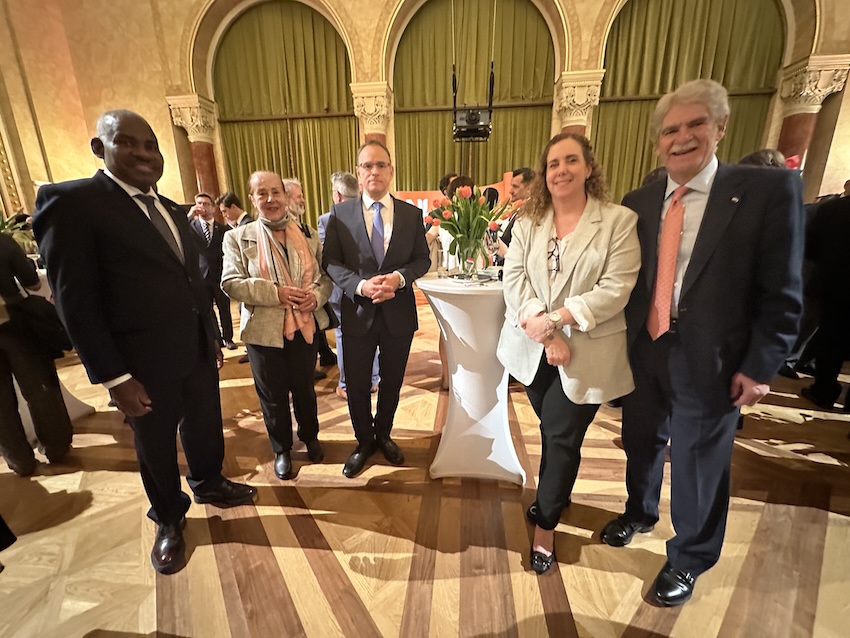
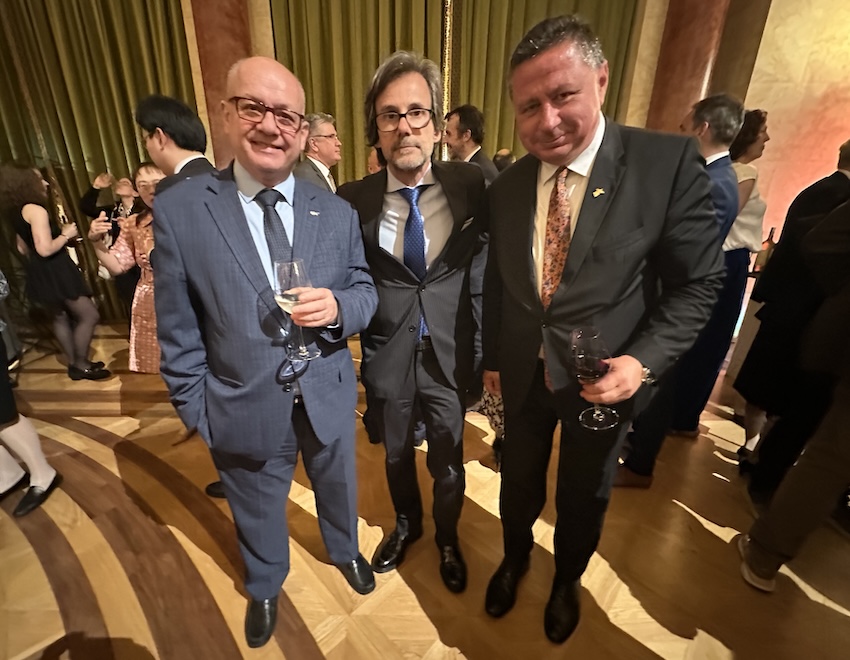
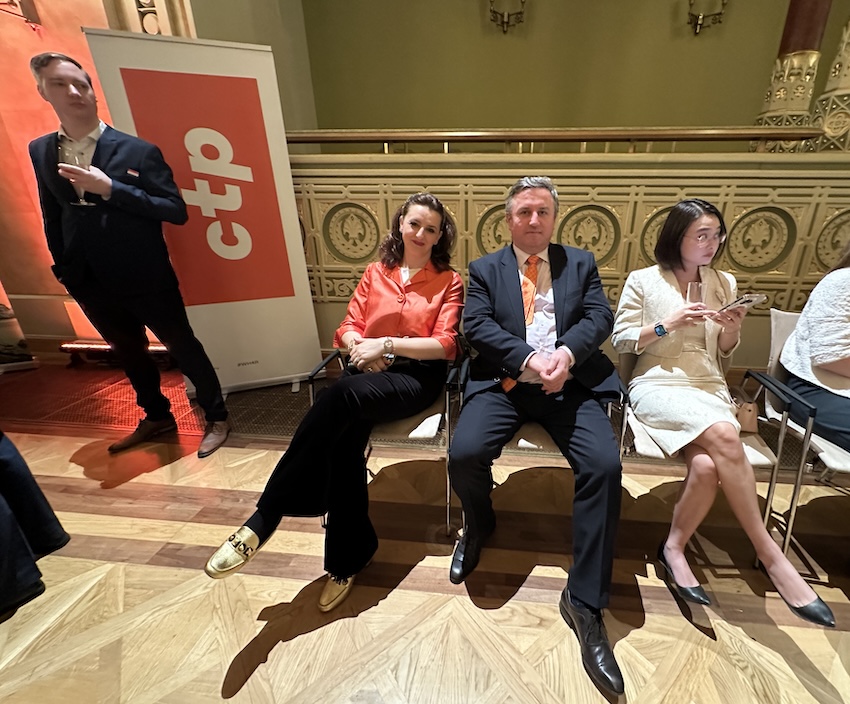

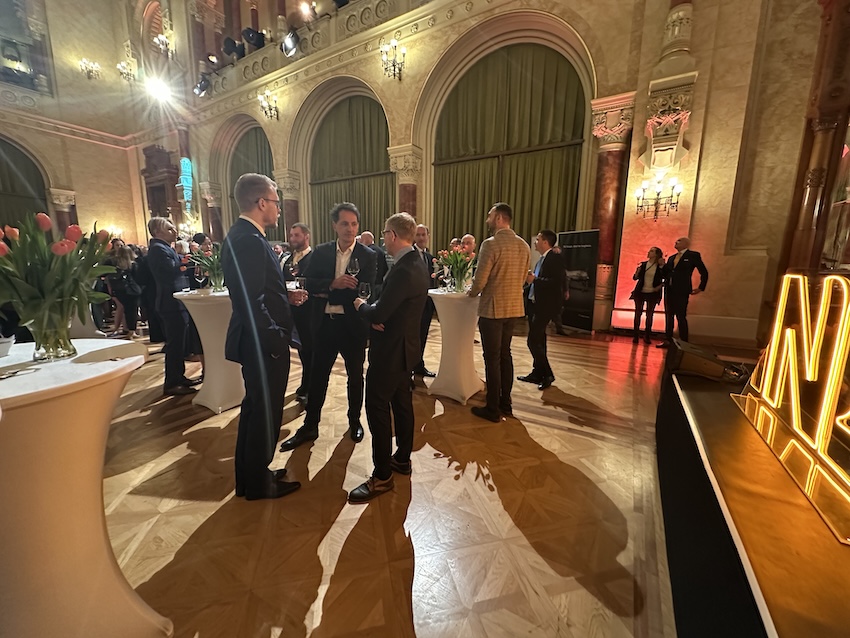
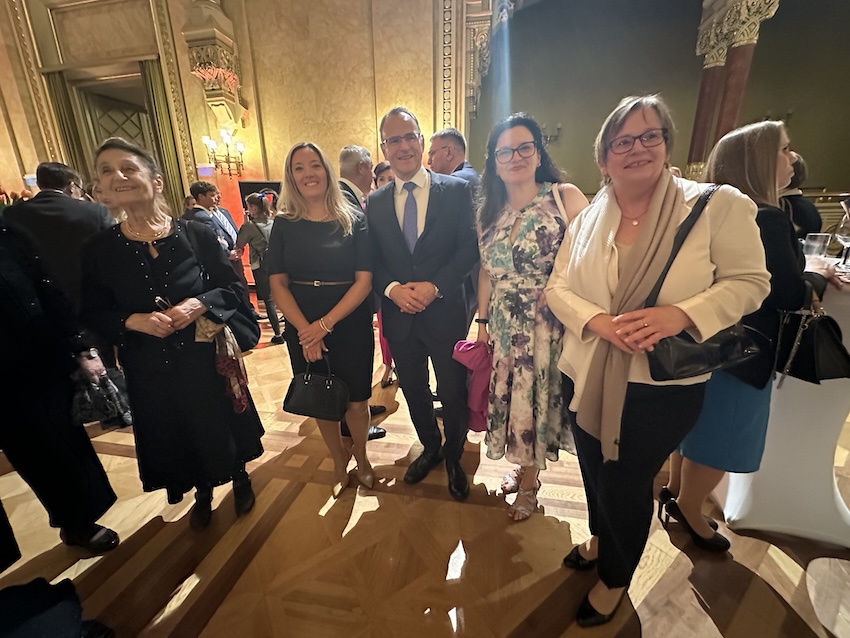
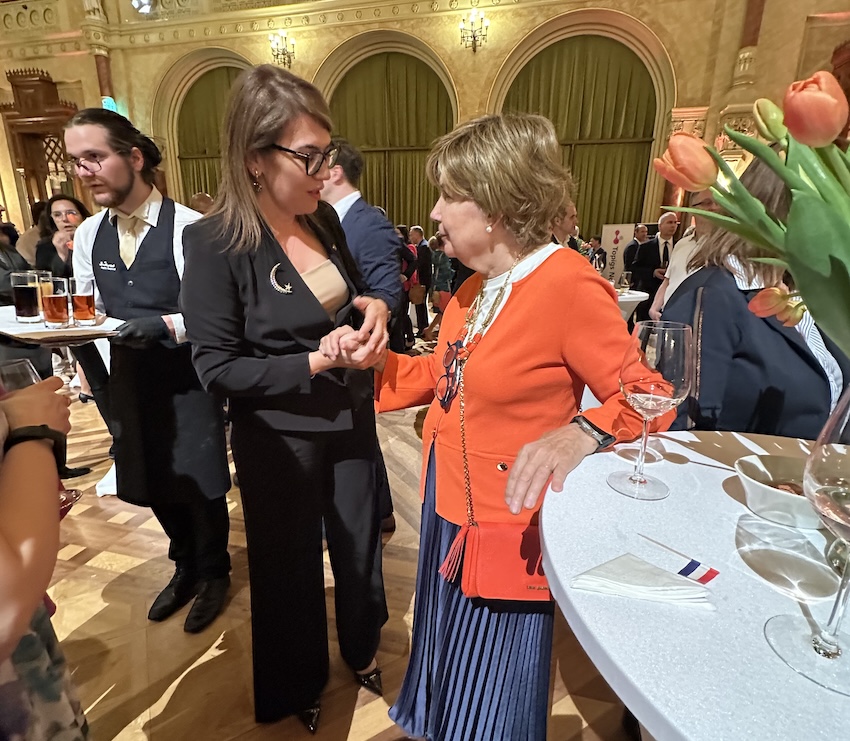
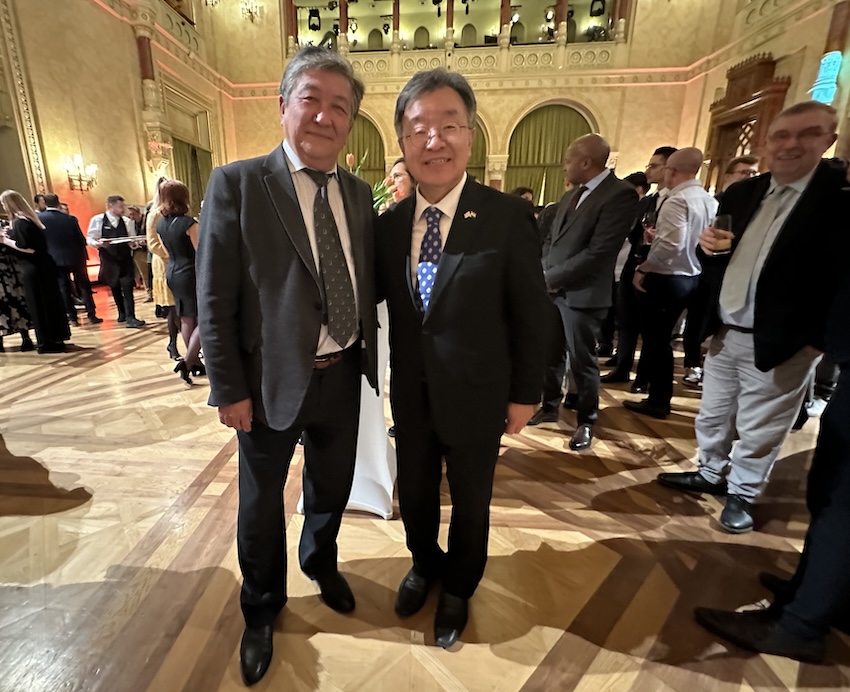
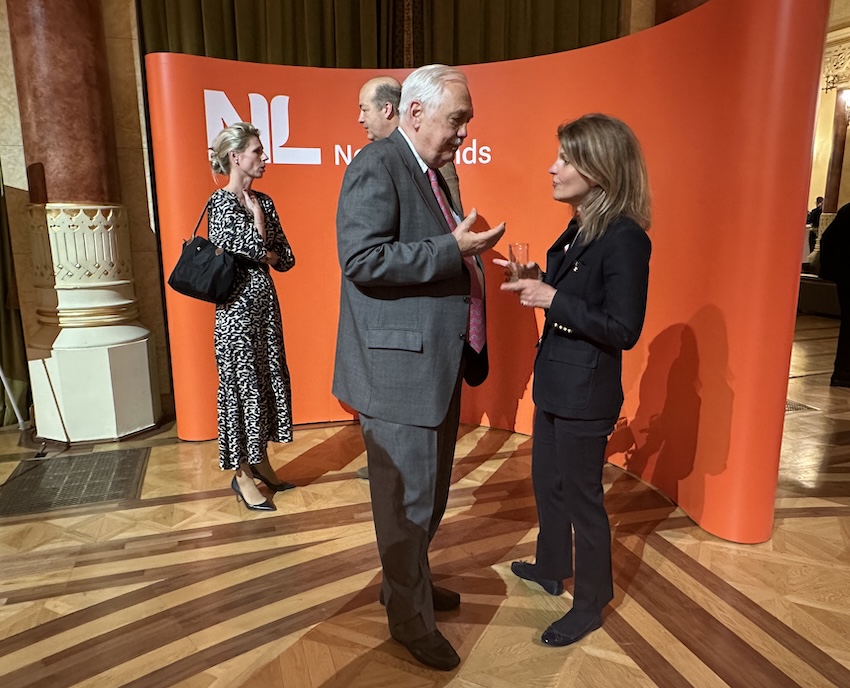
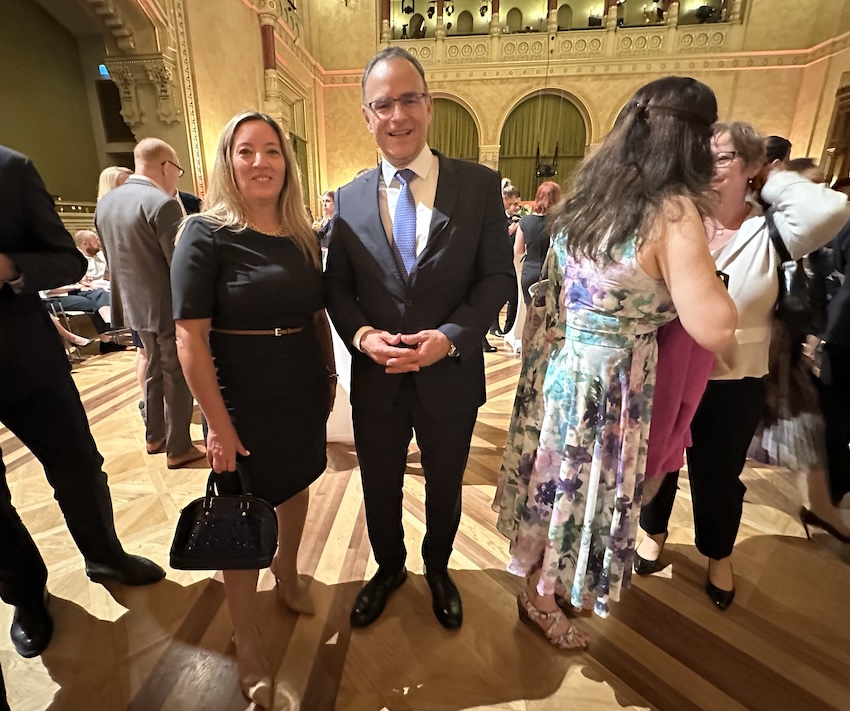
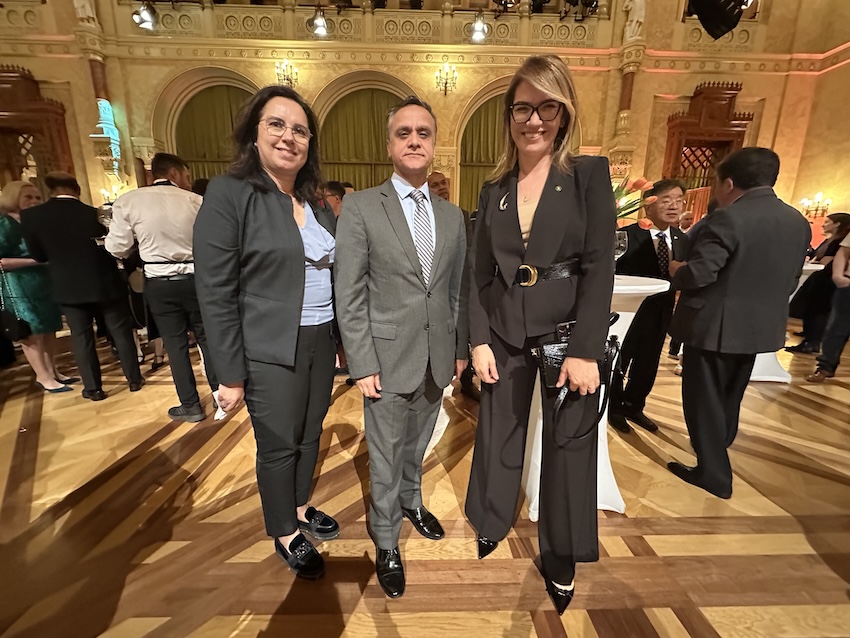
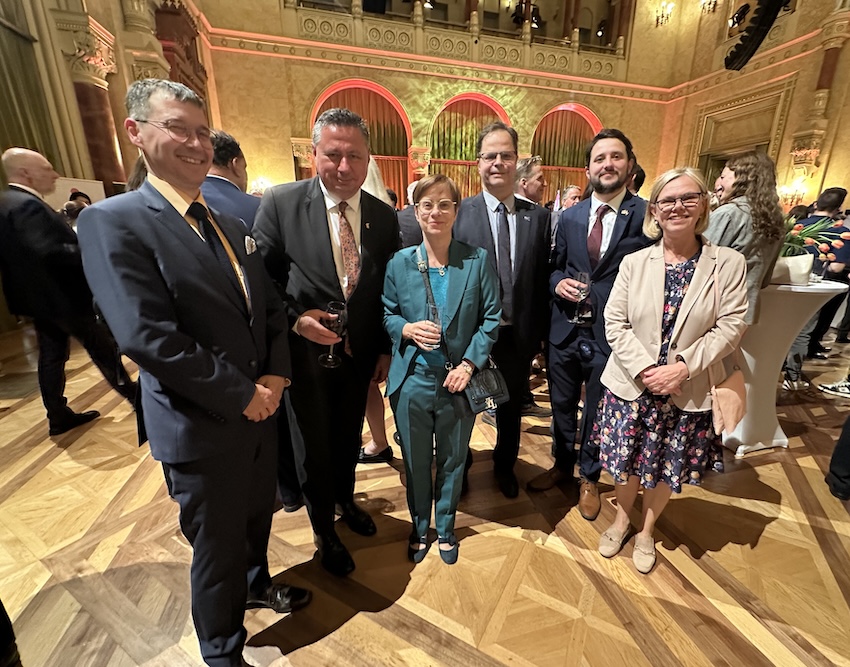
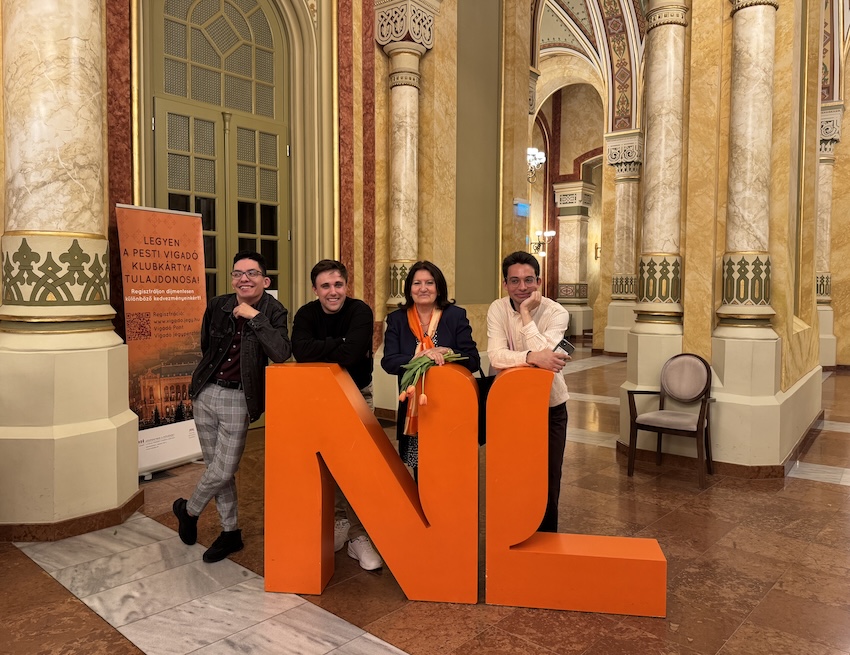
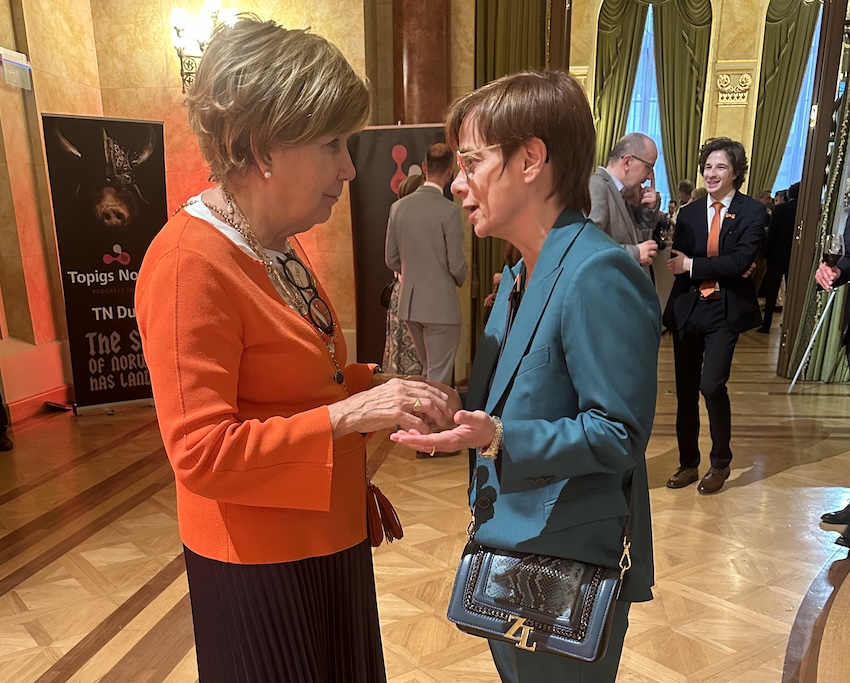
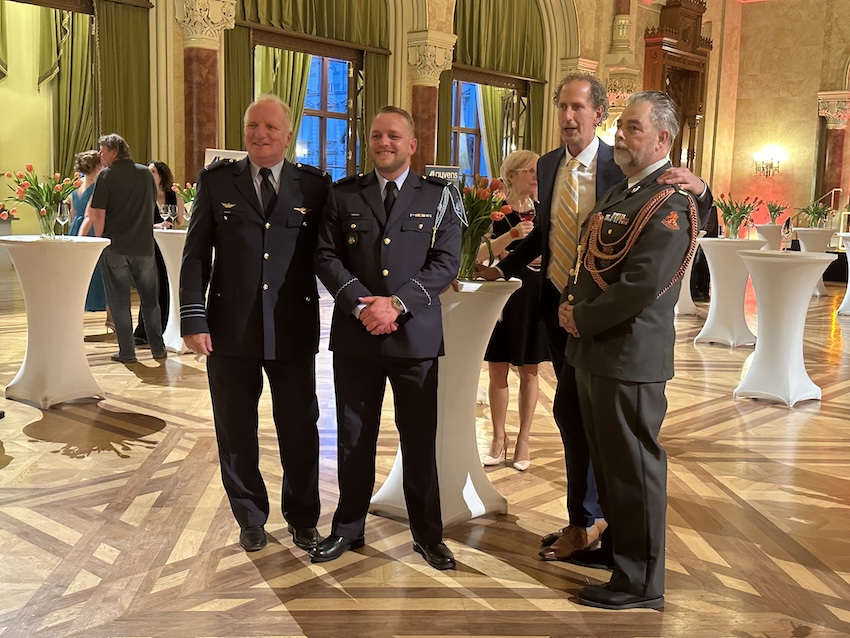
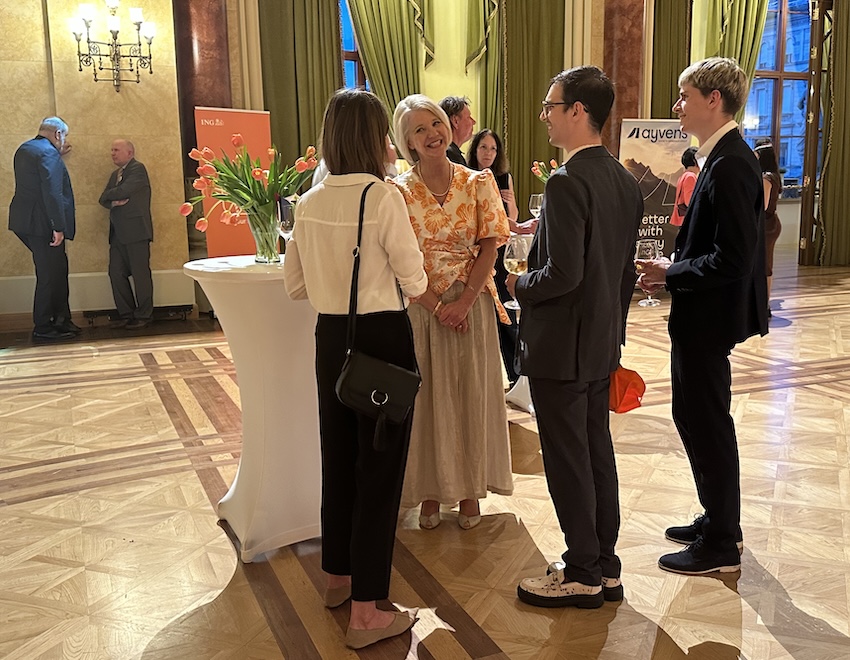
The reception took place in the elegant Grand Ballroom and was beautifully adorned with iconic orange tulips, a floral emblem of the Netherlands. The guests – many of whom wore a touch of orange – were warmly welcomed by Ambassador Désirée Bonis and Deputy Head of Mission, Ms. Yvette Szepesi.
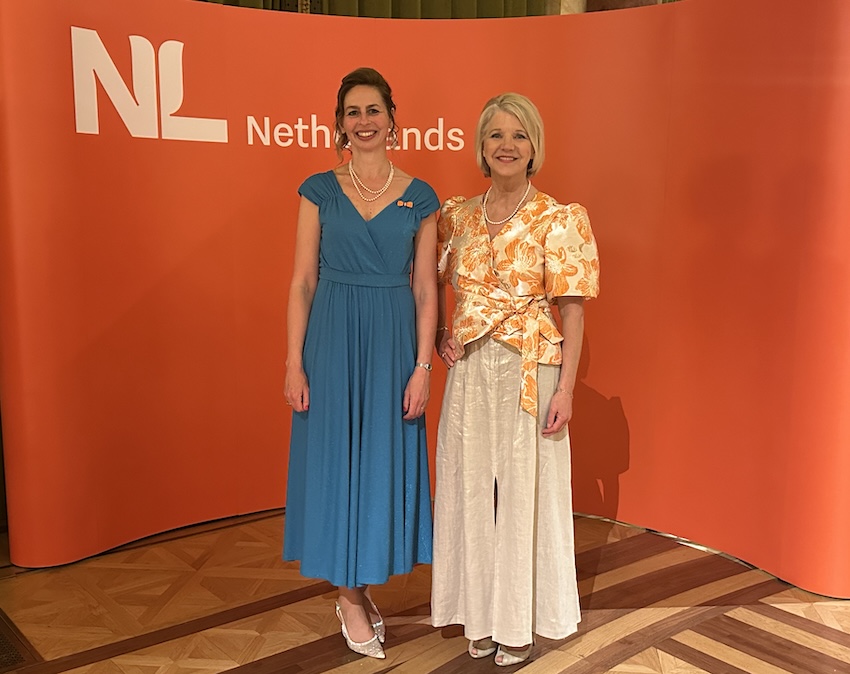

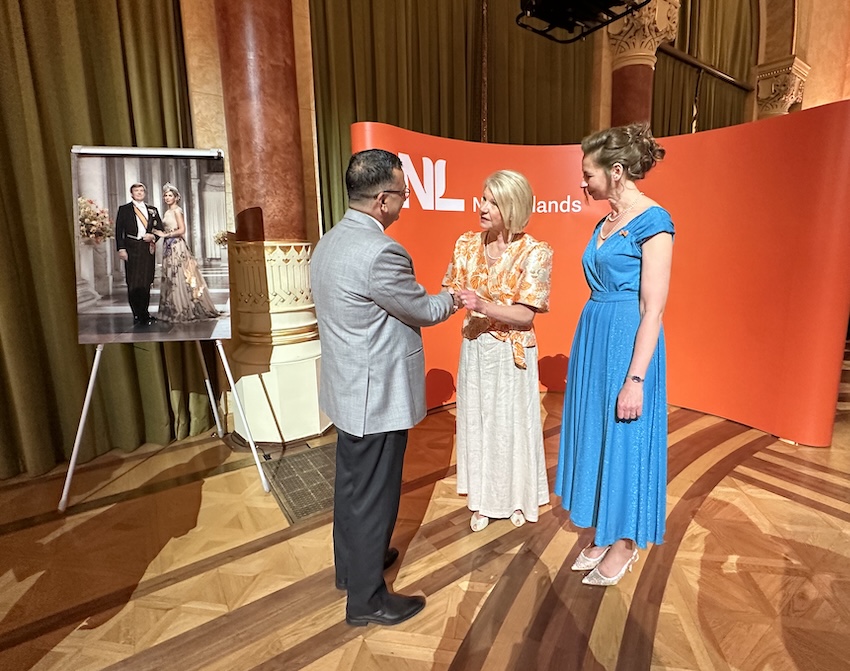
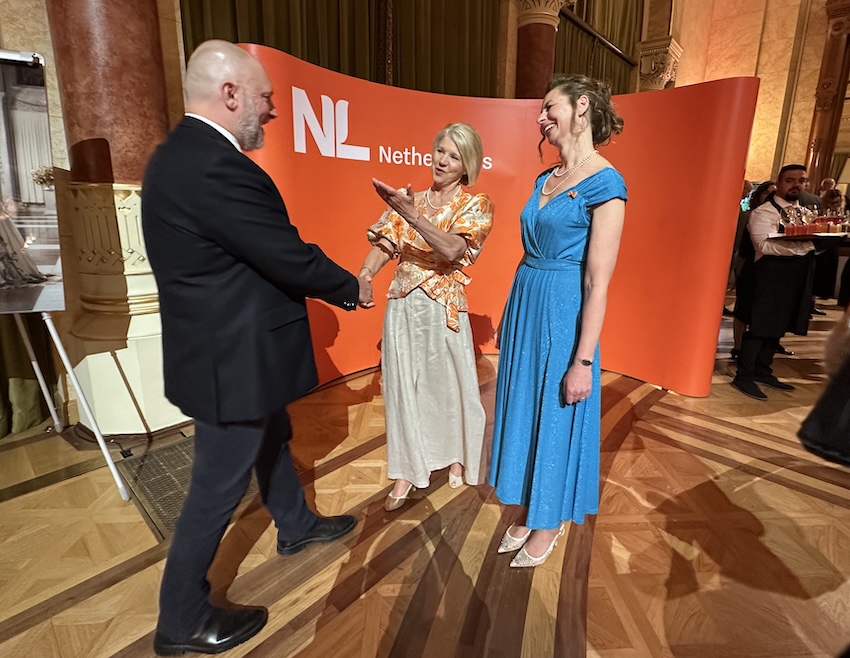
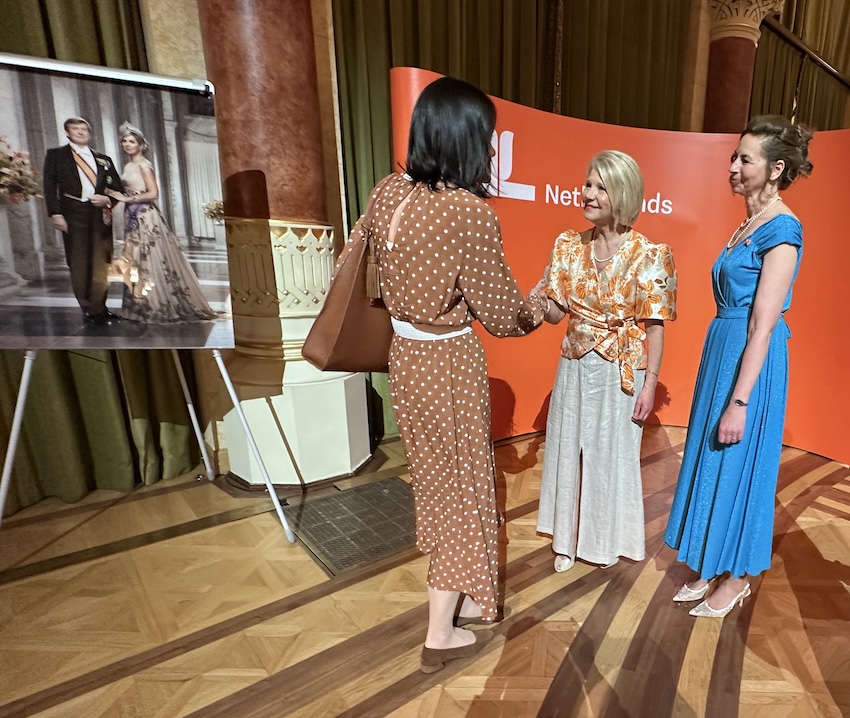
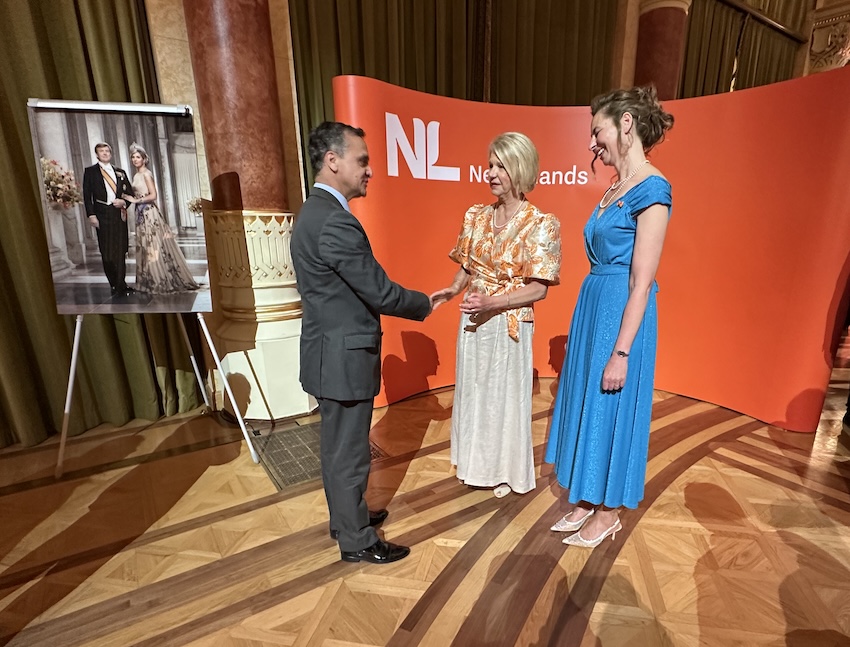
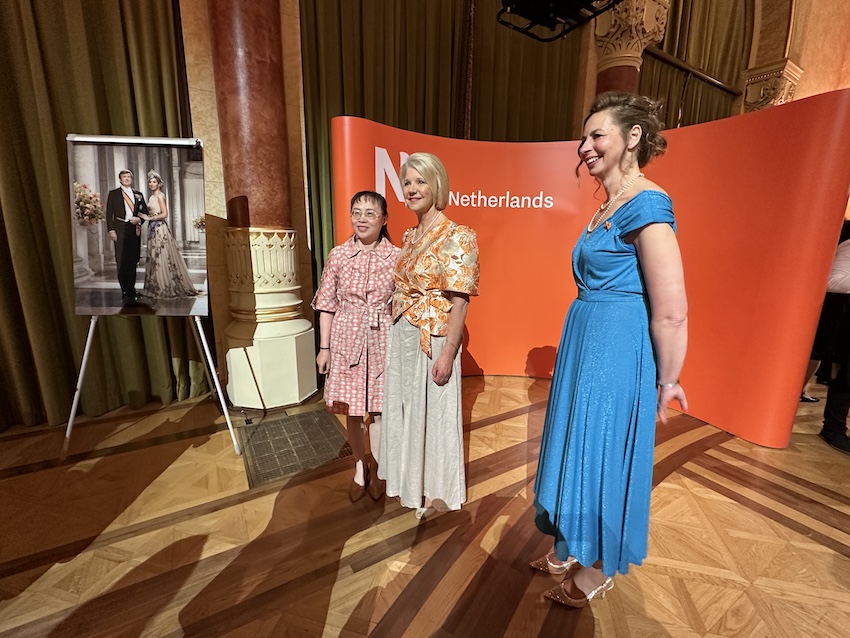
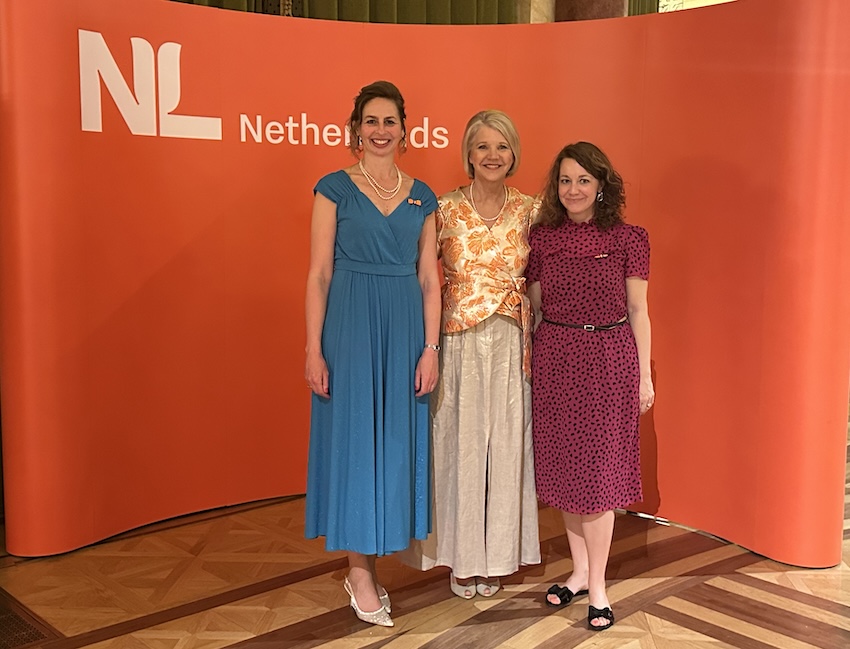
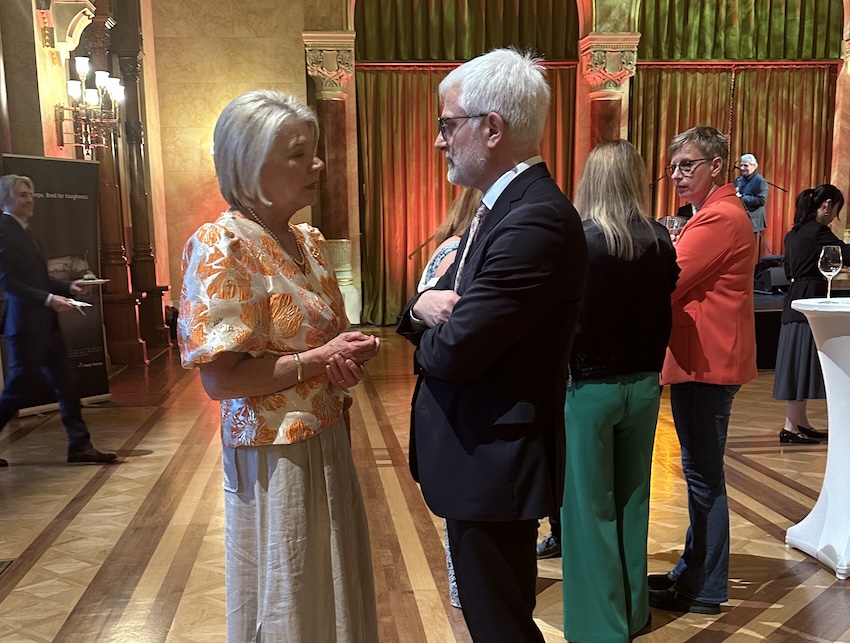
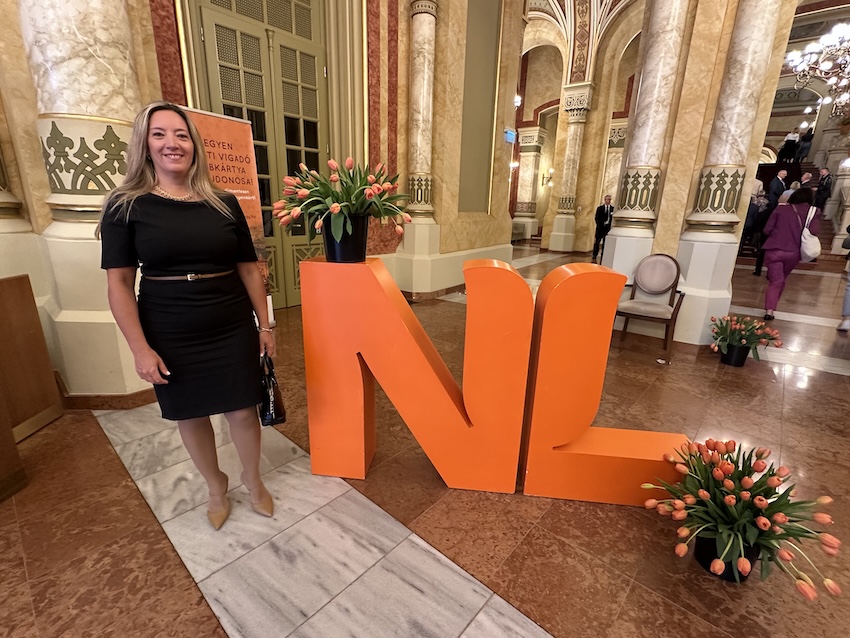
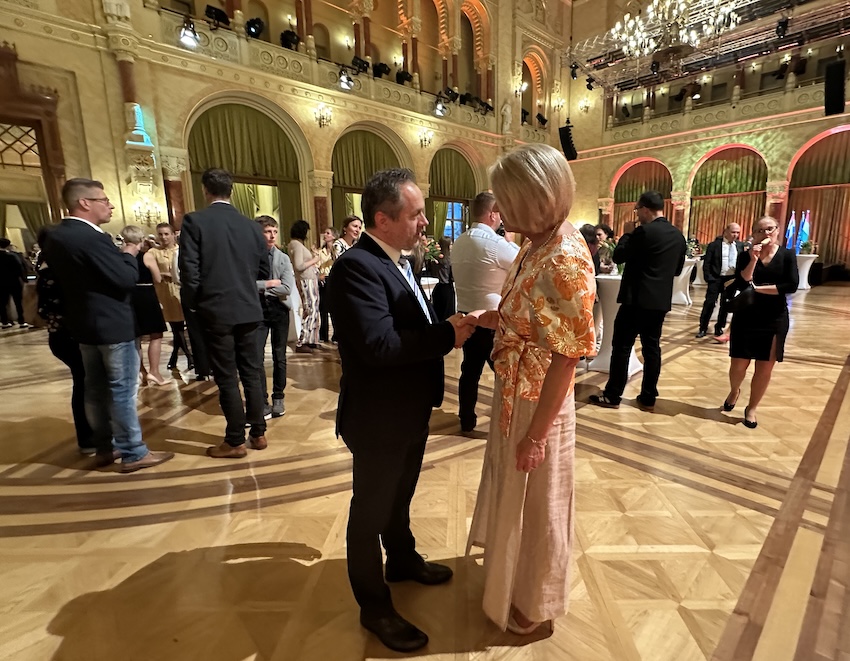
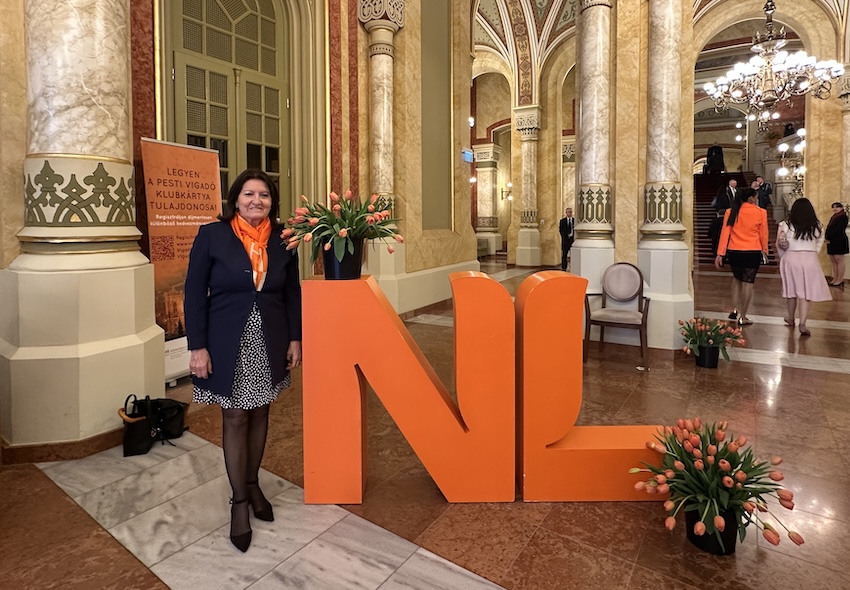
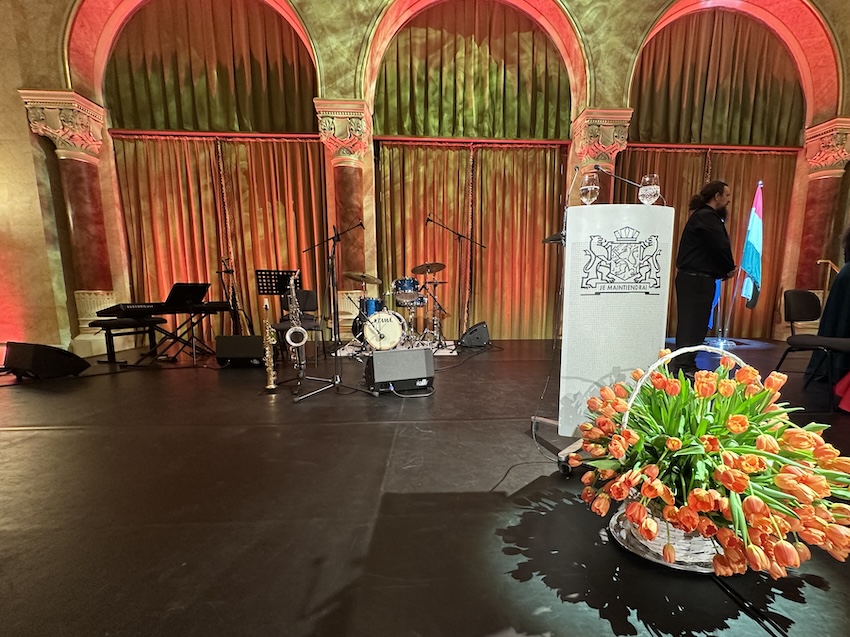
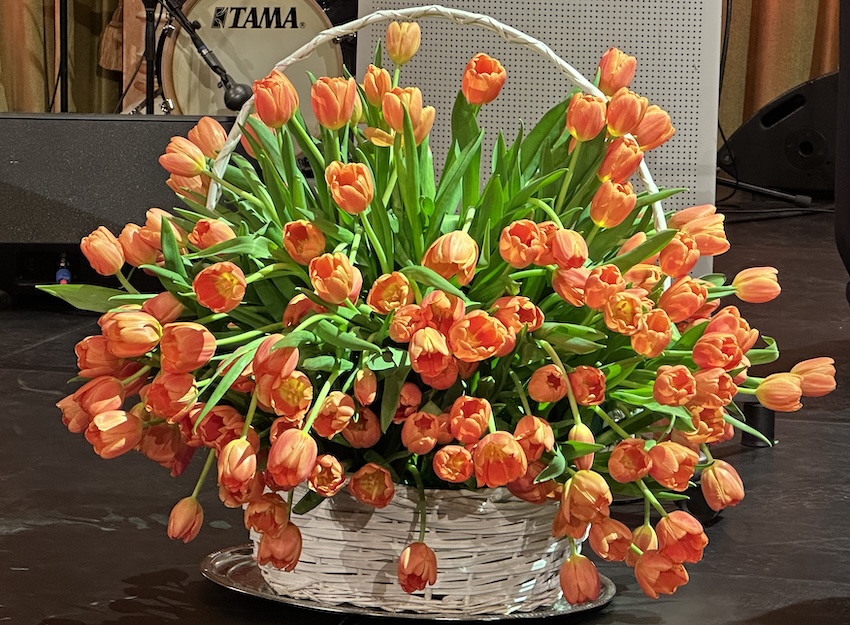
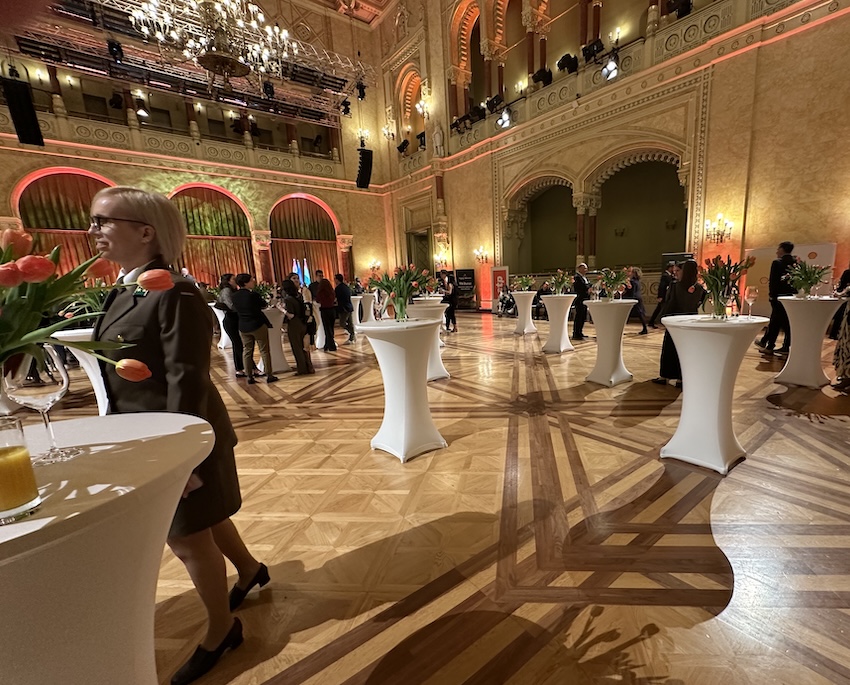
The celebration began with the national anthems of the Netherlands, Hungary, and the European Union, performed by the Hungarian choir Arte Semplice, setting a dignified tone for the evening.
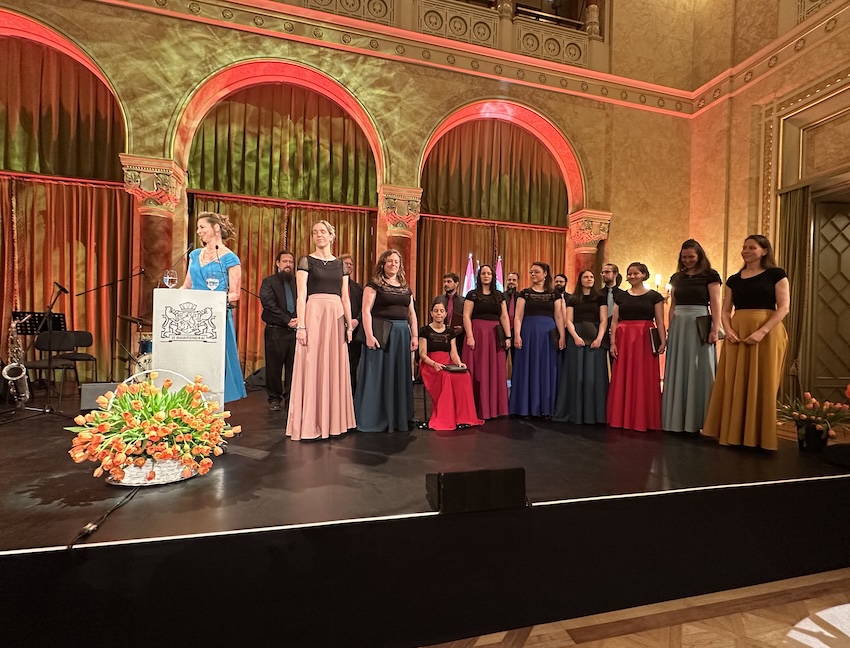


This was followed by the speech of H.E. Désirée Bonis, Ambassador of the Kingdom of the Netherlands:
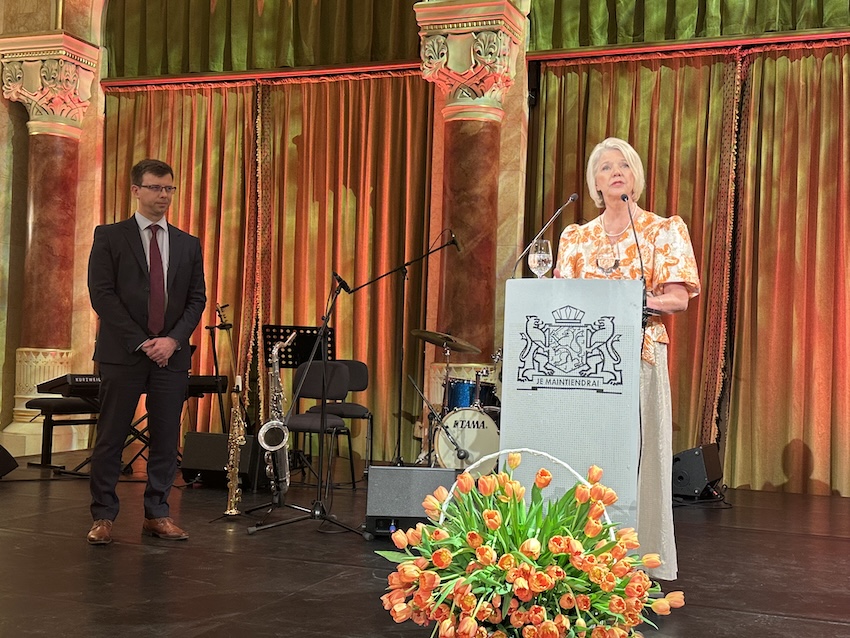
“Your Excellency János Bóka, Minister for EU Affairs, and other dignitaries of the Hungarian Government; Excellencies, Ambassadors accredited to Hungary and other members of the Diplomatic Corps; Kedves magyar vendégeink – dear guests – lieve landgenoten!
Thank you all for joining us today to celebrate King’s Day here in the magnificent Pesti Vigadó – a good showcase of Hungary’s rich history and culture, which I have come to love deeply over the past three and a half years. The performance of our choir Arte Semplice was a beautiful example of this culture: thank you for your moving performance, which touched our hearts. I look forward to hearing the Ventura Orchestra later on, who will surely contribute to the festive atmosphere.
Allow me to take this opportunity to thank my dear colleagues at the Embassy not only for organizing this reception, but also for their outstanding work throughout the year: köszönöm szépen, dank jullie wel!
And last but certainly not least, a heartfelt thank you to our generous sponsors, whose names are displayed on the screens. Without your support, this reception would not have been possible – please give our sponsors a big round of applause!
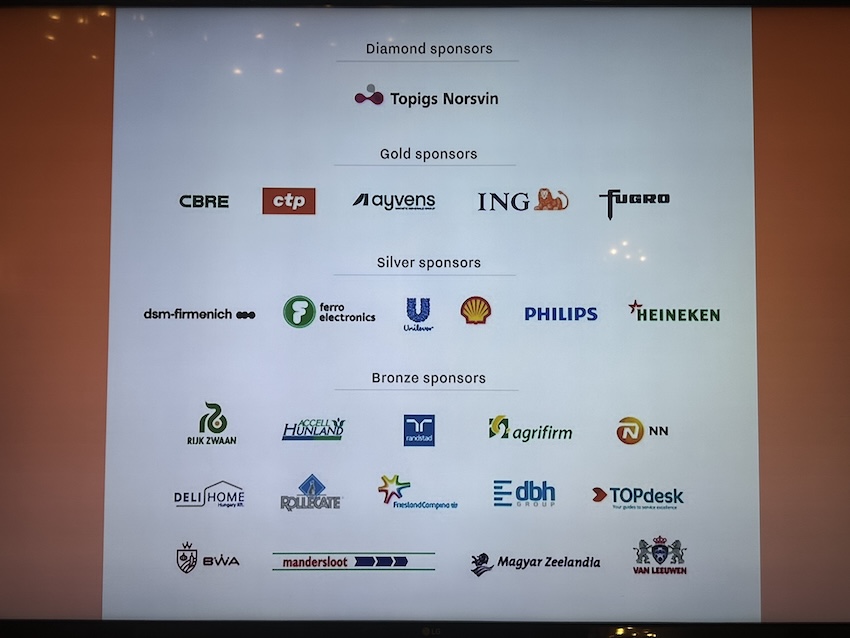
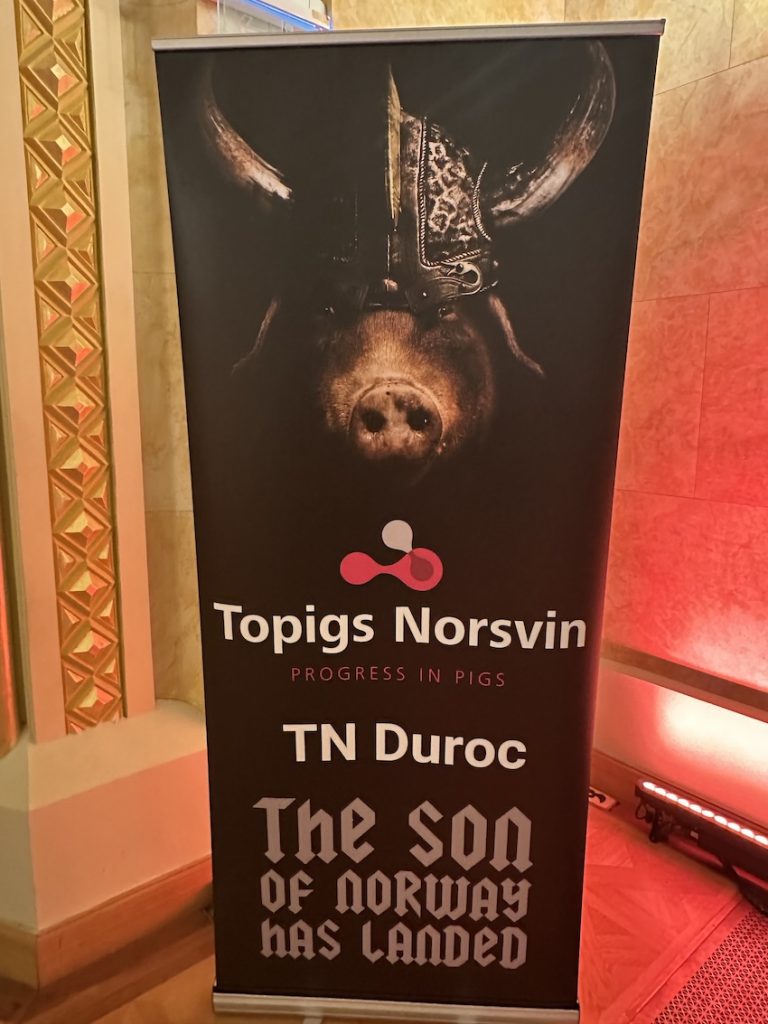
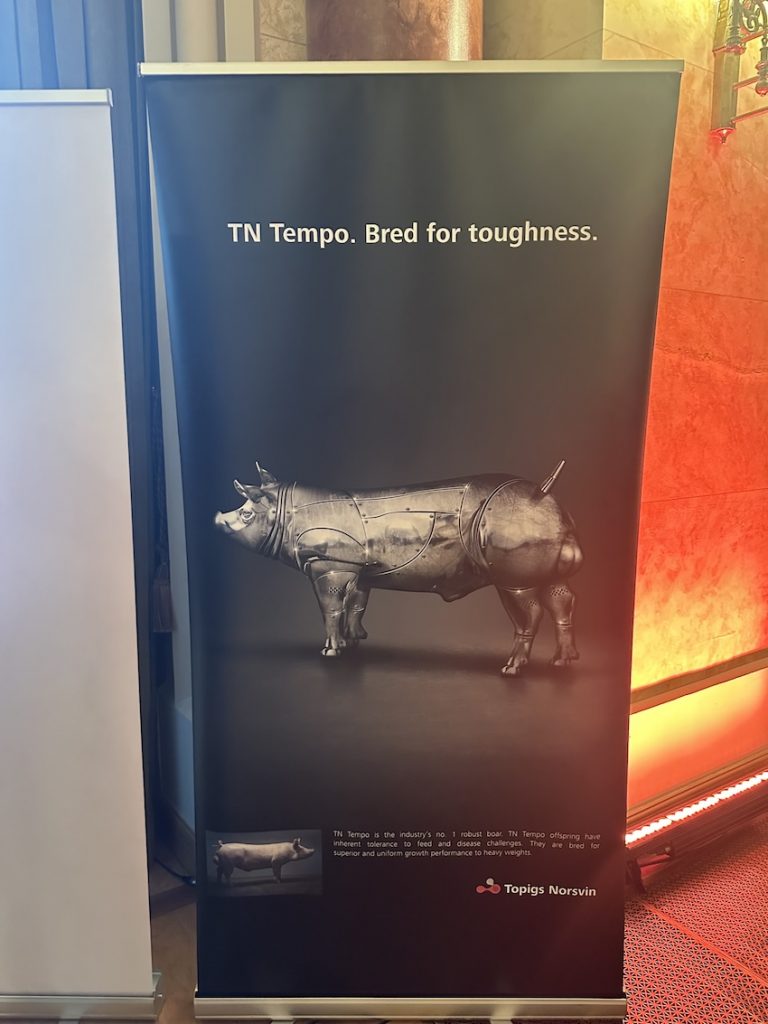
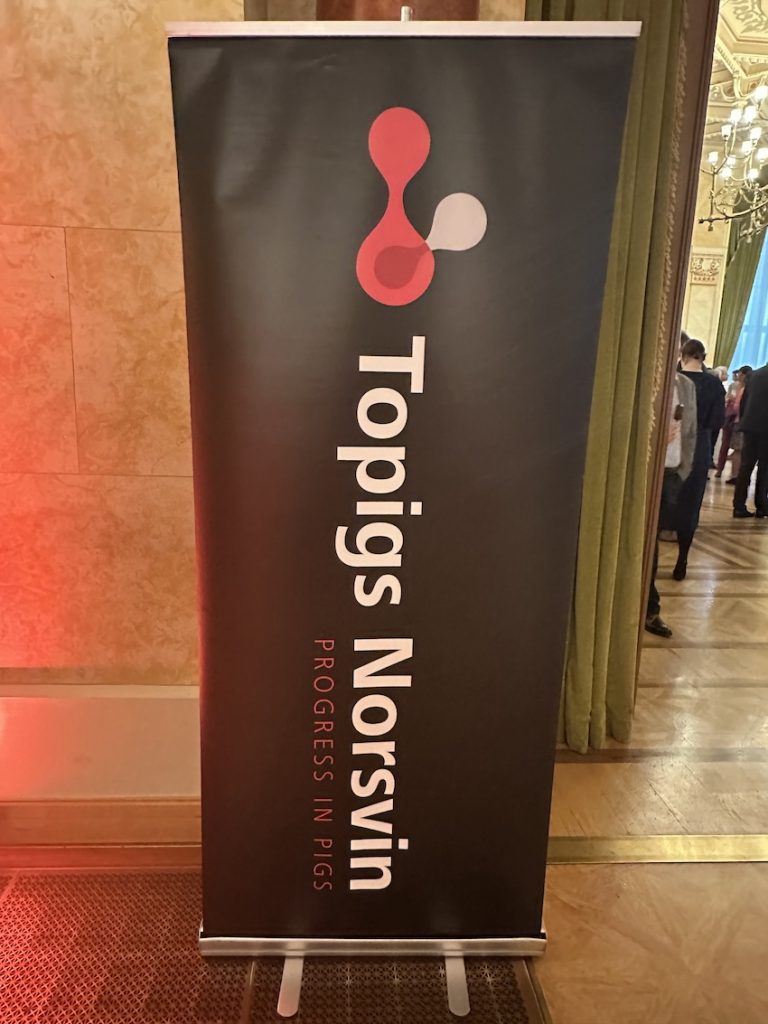
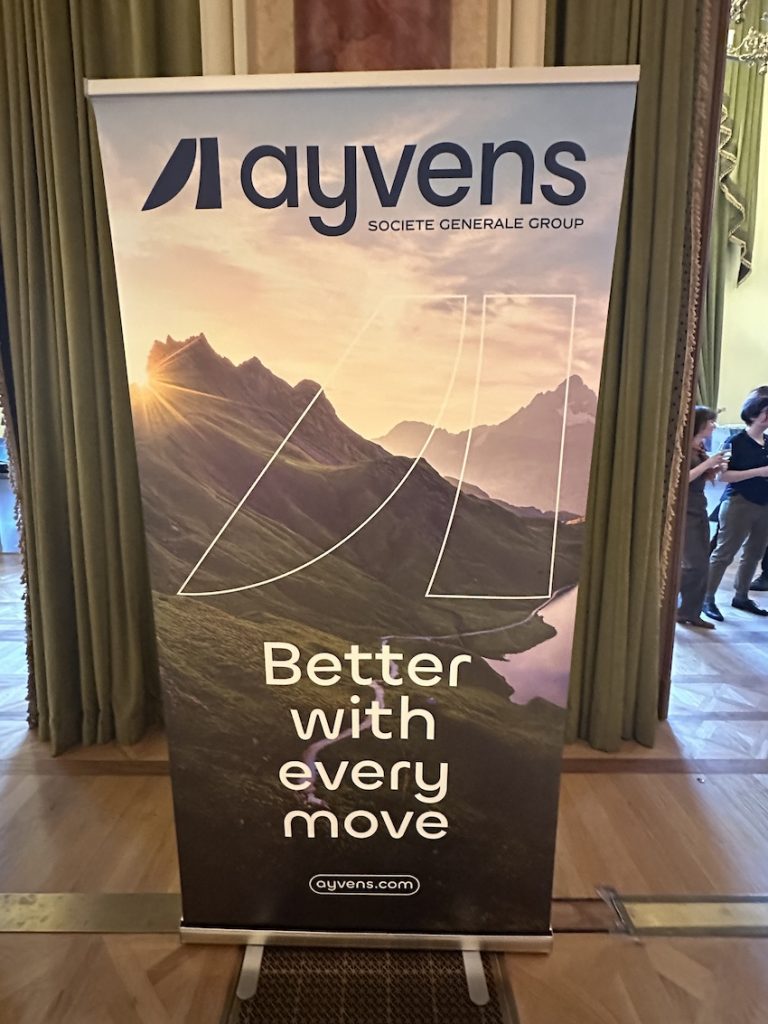


Ladies and Gentlemen,

On Easter Monday, the world was informed of the passing of His Holiness Pope Francis. From the Netherlands – a country where the majority of people adhere to no religion – I wish to express my sincere condolences to the followers of the Roman Catholic faith, who have lost their spiritual leader.
We share your grief.
Sorrow also exists in the war-torn parts of the world – in the Middle East, on the African continent, and closer to home, in Ukraine, which has now entered its fourth year of war due to ongoing Russian aggression. I want to pay tribute to the people of Ukraine, who continue to fight for their independence.
Ladies and Gentlemen,
In the second half of 2024, we saw Hungary in action – at full speed – while it held the Presidency of the EU Council. We commend Hungary for the way it carried out this important task under your leadership, Minister, even after a somewhat rocky start. Several Dutch delegations – from ministers to policymakers and technical experts – visited Budapest, and the meetings were productive. These discussions continue today in Warsaw under the Polish Presidency, and in July 2025, the torch will be passed to Copenhagen to mark the start of the Danish Presidency.
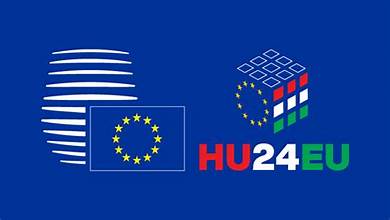
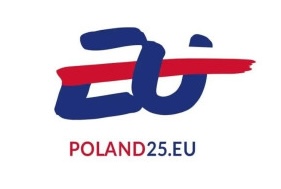
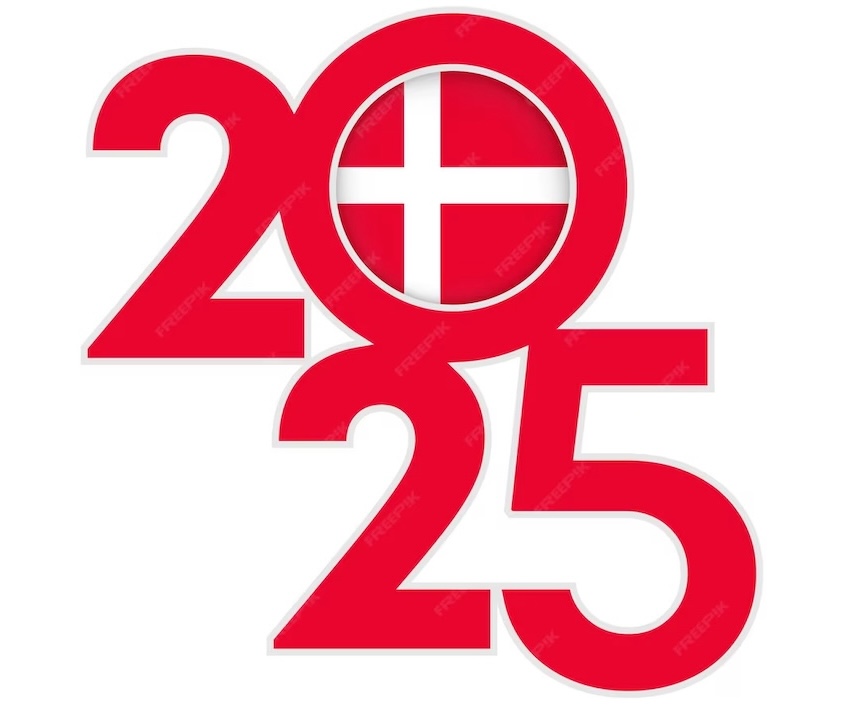
As a founding member of the EU, the Netherlands remains more committed than ever to the European Union – as a community of shared values and an economic powerhouse – in these turbulent times.
Ladies and Gentlemen,
The Netherlands has also been an ally in the North Atlantic Treaty Organisation, NATO since its founding. After World War II, when the dust had settled, we believed the free world that had emerged was worth defending and fighting for: an end to fascism and dictatorship, a rejection of Soviet-style communism.
A world in which Eleanor Roosevelt, then First Lady of the United States, championed the adoption of the Universal Declaration of Human Rights in the newly formed United Nations – including the right to freedom from discrimination and the right to equality before the law.
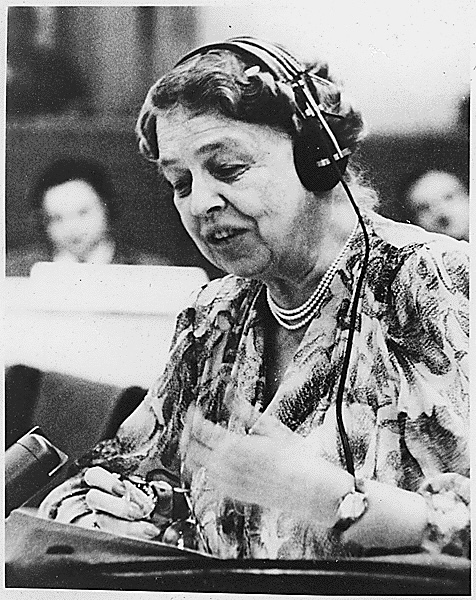
The Netherlands continues to believe in this free world – envisioned in the post-war era, sustained through the Cold War, and upheld to this day. It has given us the great freedom of choice – to be who we want to be as individuals, regardless of political belief, racial background, or sexual orientation. At last year’s King’s Day reception in Corinthia Hotel, we displayed the Amsterdam Rainbow Dress, standing proudly for the values we hold dear. And let’s not forget: orange is always part of the rainbow!
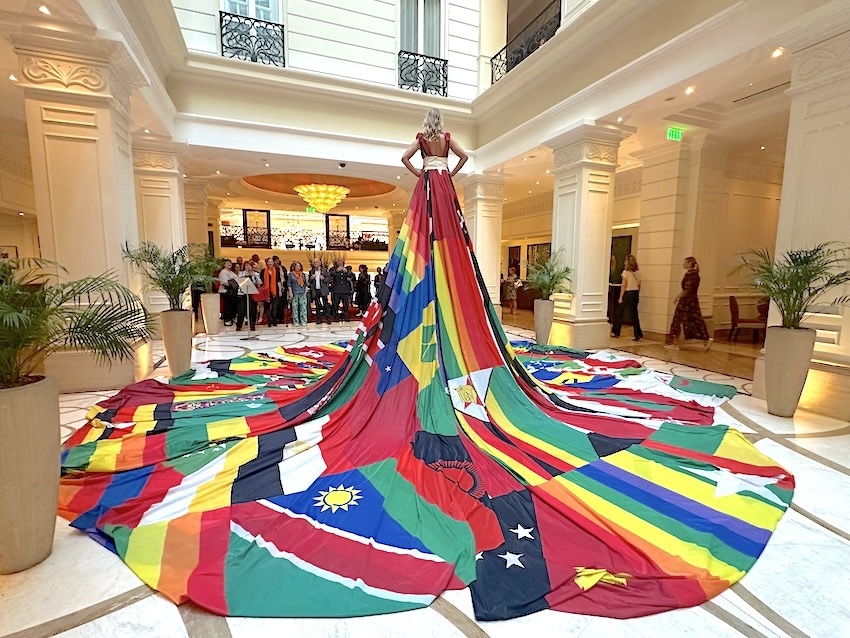
In fact, this spirit of freedom has brought great prosperity to the Netherlands since the 16th century. Today, in that same spirit, we make a deliberate choice – not for Russia, not for oppression, not for aggression – but for freedom in all the diversity that true democracy embraces and protects. For democracy, as we know all too well, is not a destination – it is a train in motion. And keeping it on track requires responsibility and vigilance from those in power.
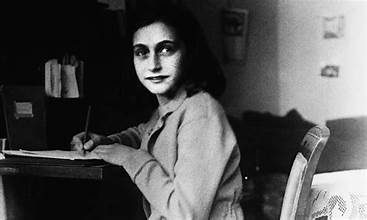
On 3 March 1944, a then-unknown girl in Amsterdam wrote in her diary: “I want to ride a bike, dance, whistle, look at the world, feel young and free.”
Her name was Anne Frank, and her yearning for freedom echoed around the world for decades.
For this free world, the Netherlands became a founding member of the United Nations, NATO, and the European Union. We are aware that, for understandable historical reasons, Hungary was only able to join NATO in 1999 and the EU in 2004 – and last year we proudly celebrated these milestones with you.
And now, in 2025, we face real and serious threats to human rights, democracy, and the rule of law – from all sides. In the face of these new challenges, our unity, our shared values, and our commitments are more important than ever.
At this historic crossroad, we hope that Hungary stays the course. From the very beginning of this nation, King István chose not the East, but the Holy Roman Empire, believing that Hungary’s future lay in the West. The Netherlands, as Hungary’s friend and partner, still believes that it does. And more importantly, many Hungarians believe so too. Faced with this proposal, dear Minister, I trust that your answer will be: I do… I do! Minister, you have the floor!”
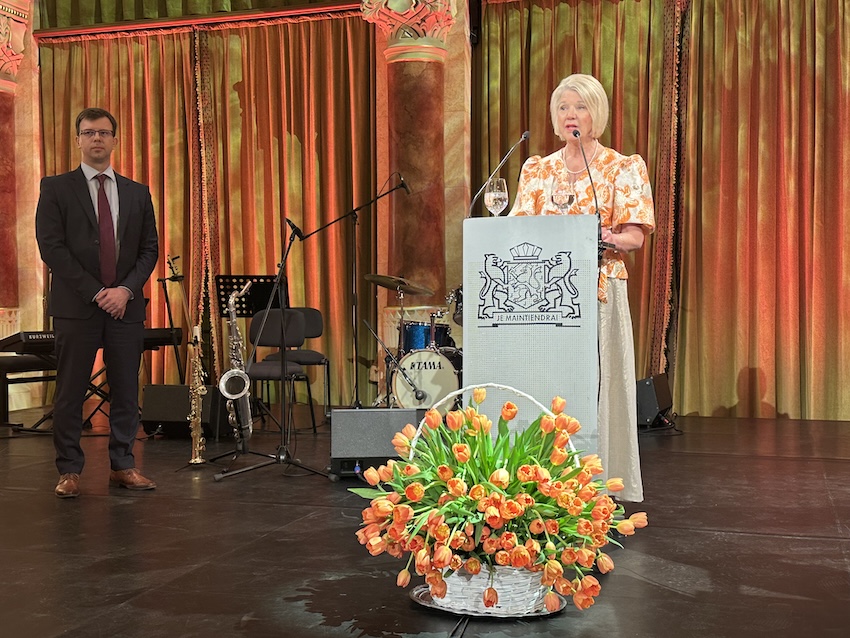
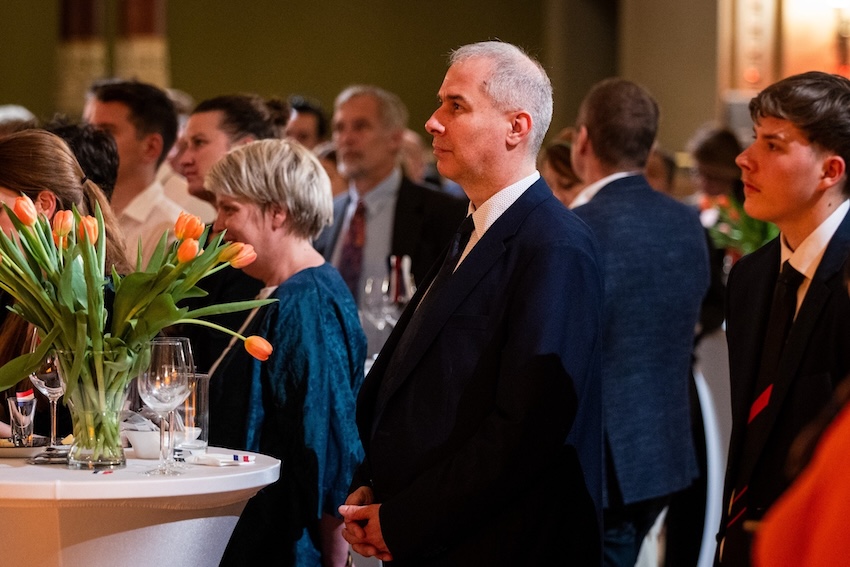

In his speech, as Guest of Honour, János Bóka, Minister of European Affairs of Hungary, underlined:
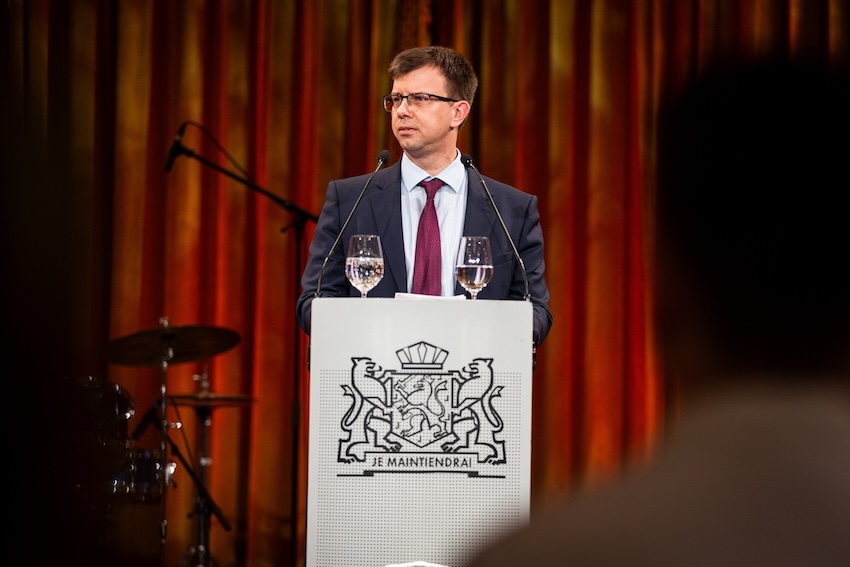
“Hungary and the Netherlands share a common destiny in that corner of the world we call Europe.
Europe is an idea that connects us. A promise that unity is stronger than division. A promise that we can remain united even in our diversity – because unity does not mean uniformity, cooperation does not mean one-sided adaptation, and consensus is born of agreement, not coercion.
Today, we need a Europe built on shared values, common interests, and mutual respect. Let us seek and strengthen the kind of unity that bridges differences still bridgeable, and let us learn to live with the fact that we are not the same – yet we have chosen to be allies, partners, and members of the same European family.”
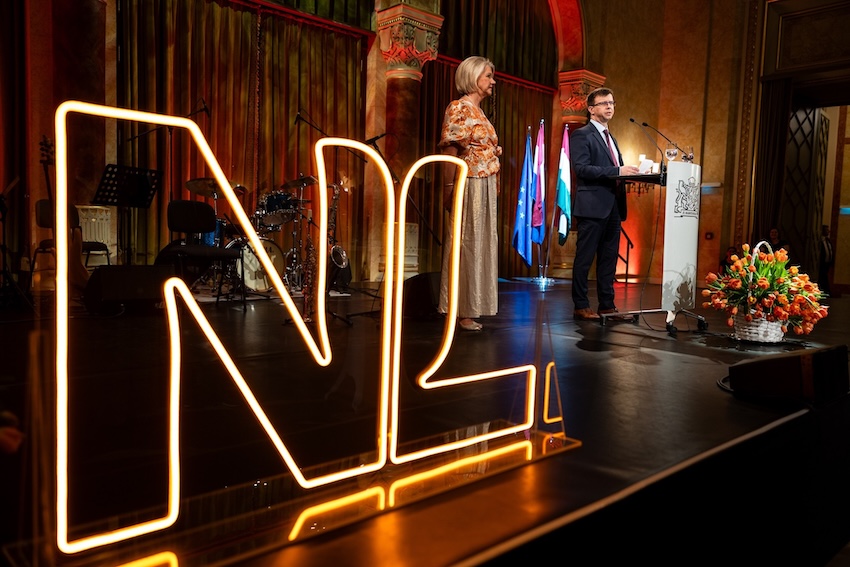
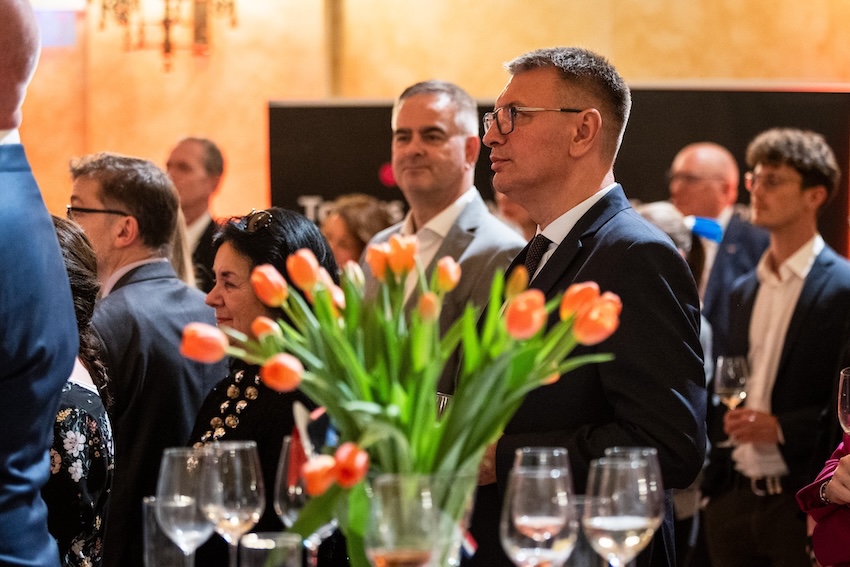
In conclusion, the Ambassador proposed a toast to the vivid relations between the two countries and to the birthday of His Majesty King Willem-Alexander of the Netherlands.
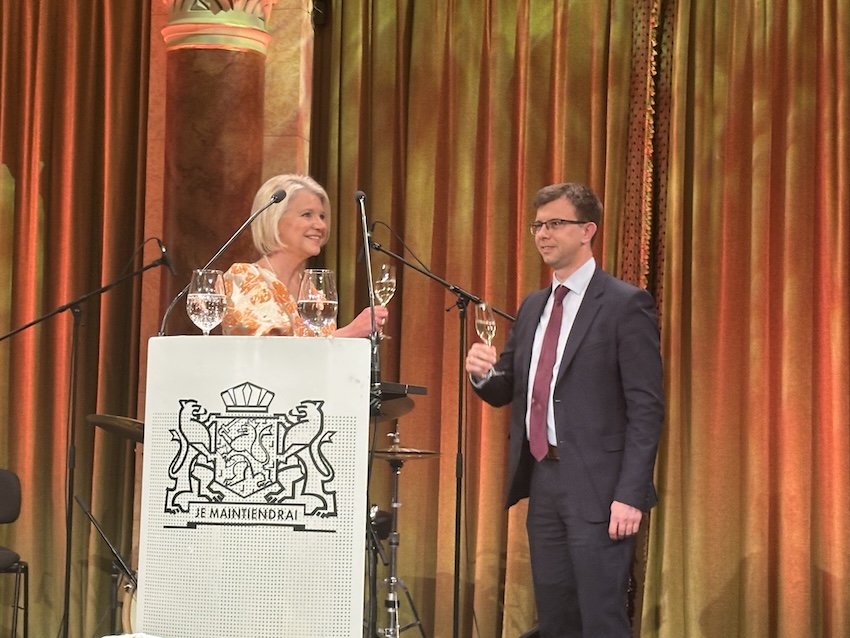
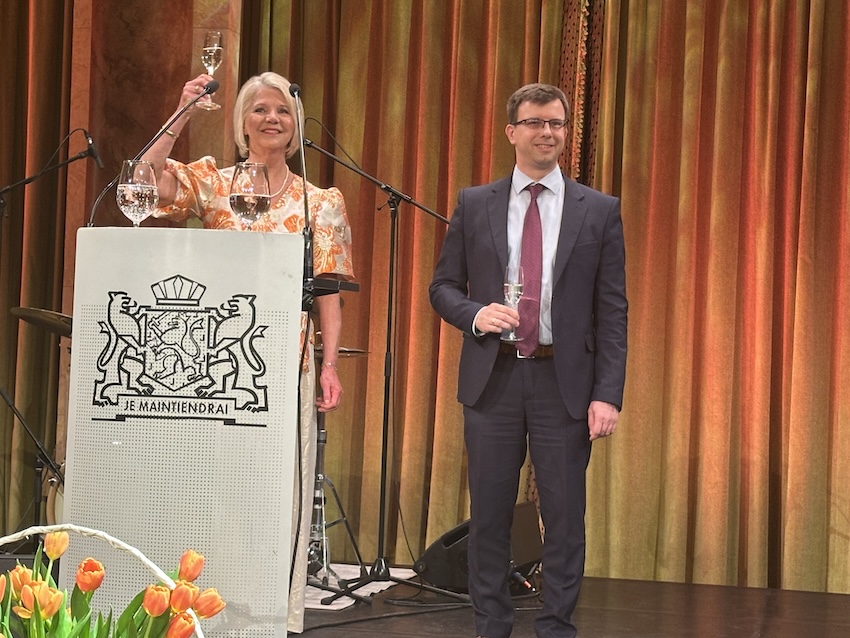
Following the official proceedings, guests enjoyed live musical performances from the Ventura Orchestra, while sampling a variety of iconic Dutch delicacies, including world-famous cheese selections, Heineken beer, Daelmans stroopwafels, and other fine treats.
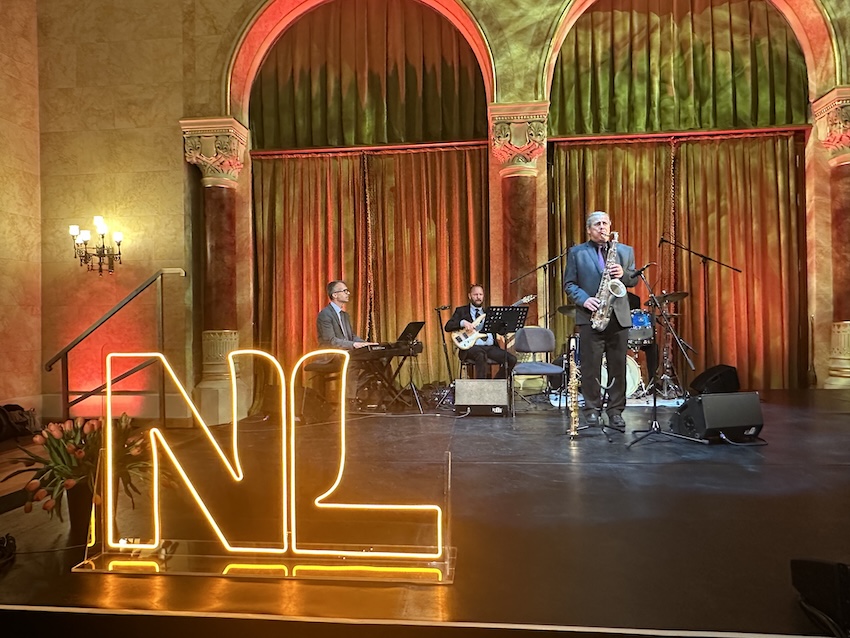
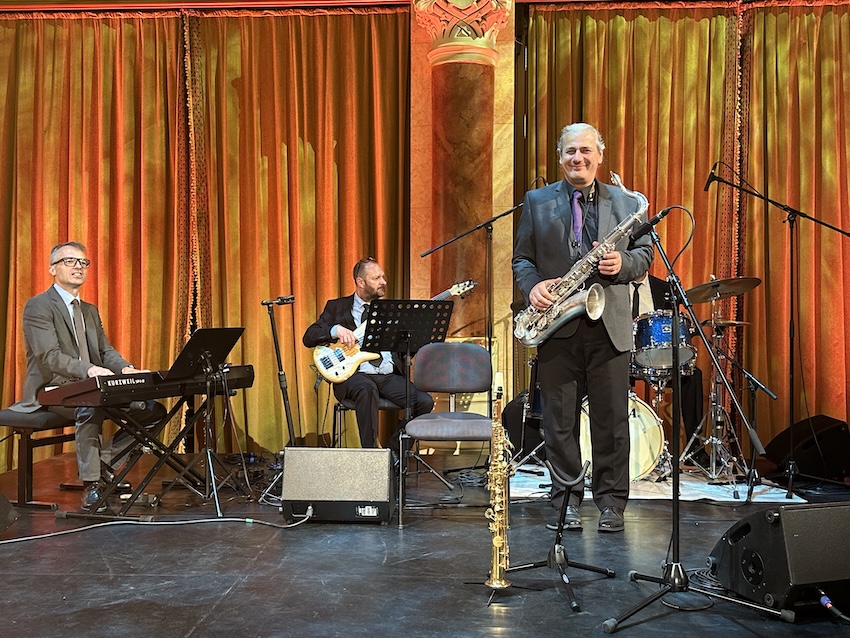
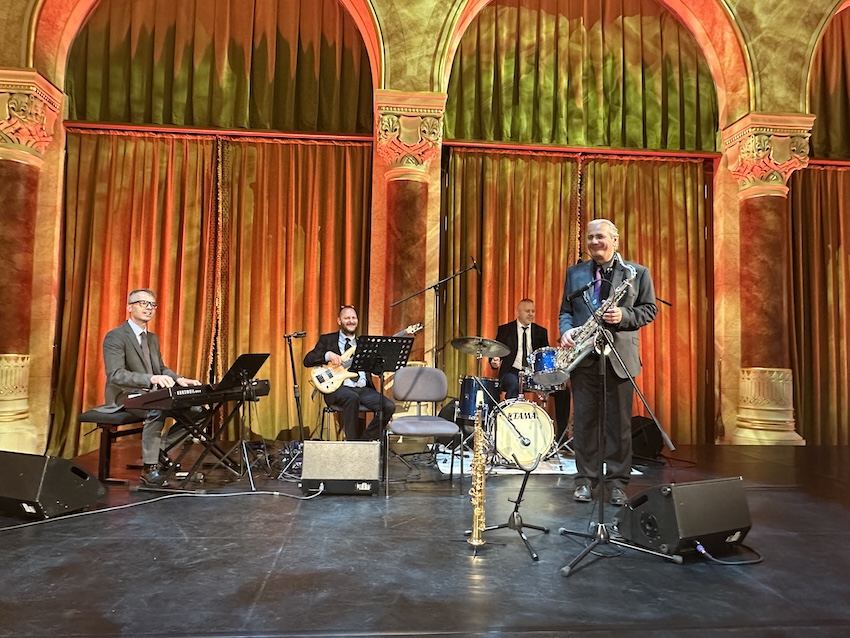
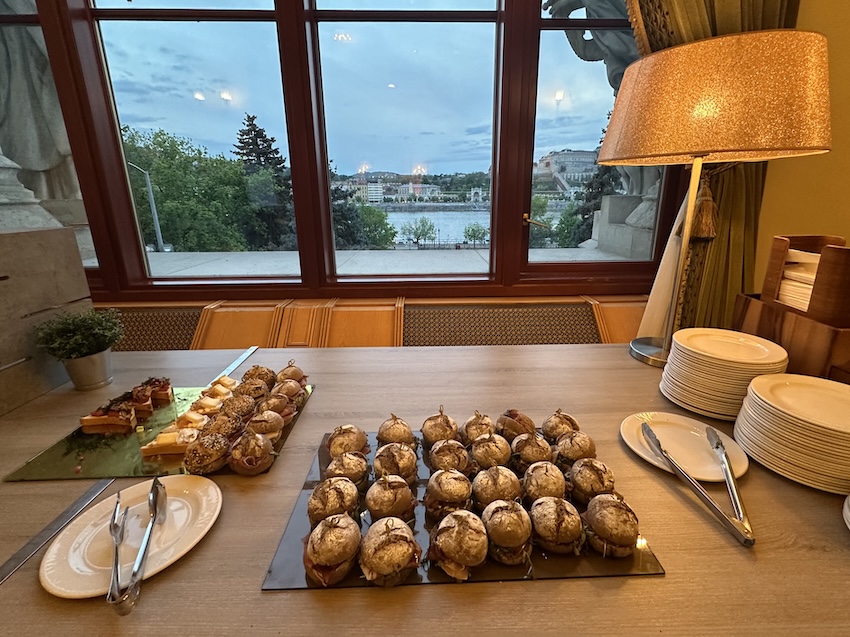

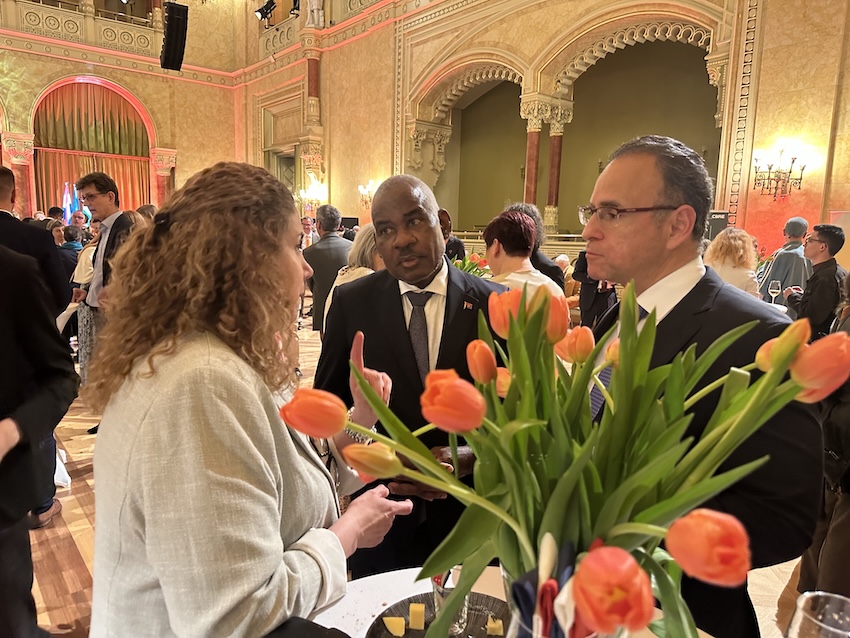


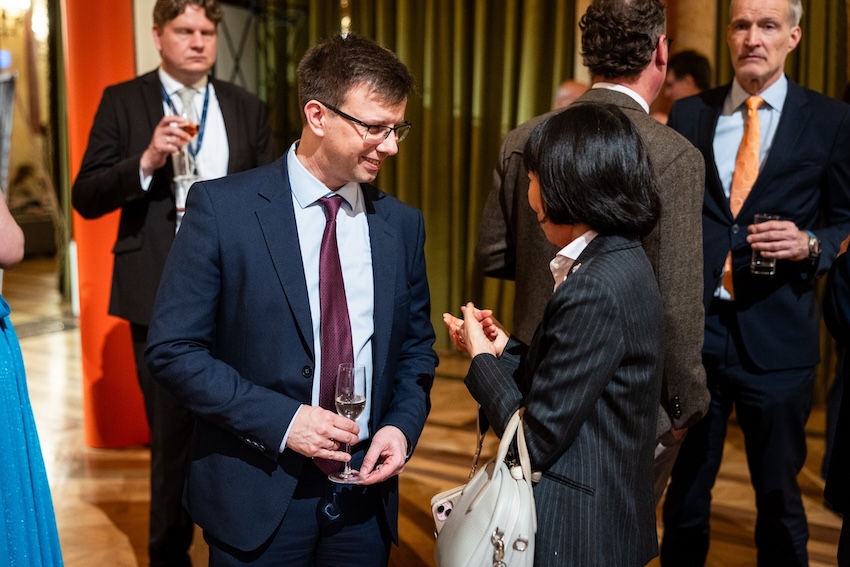
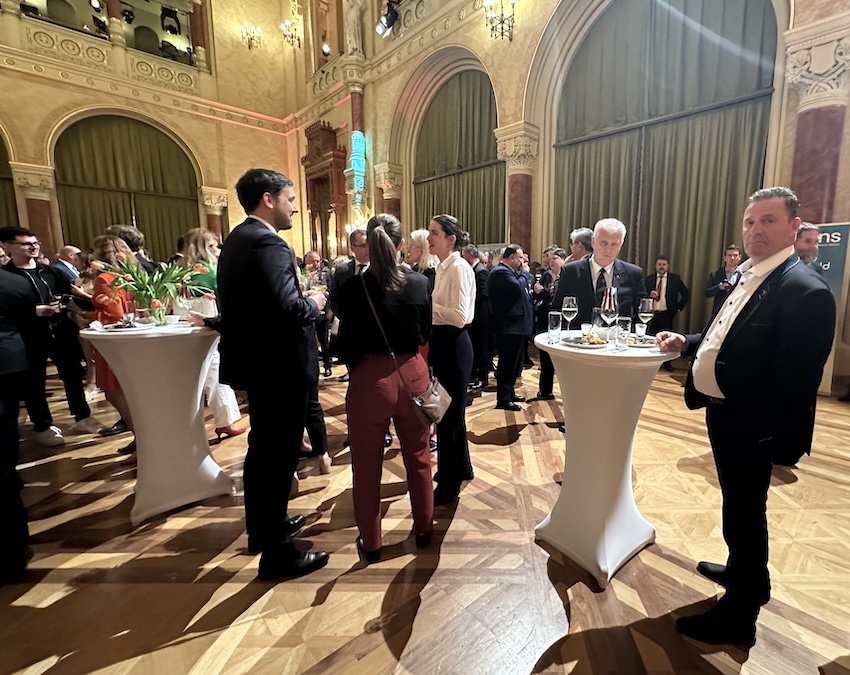
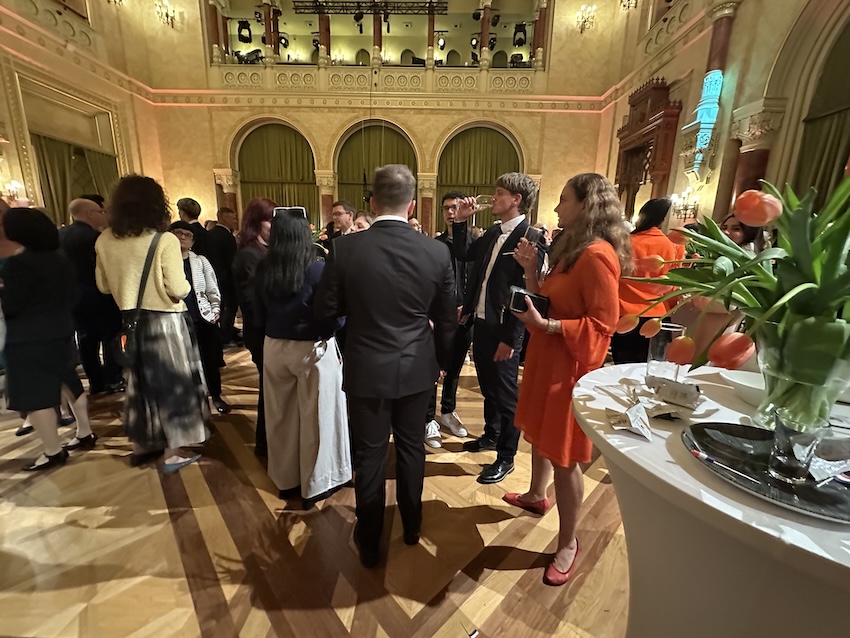
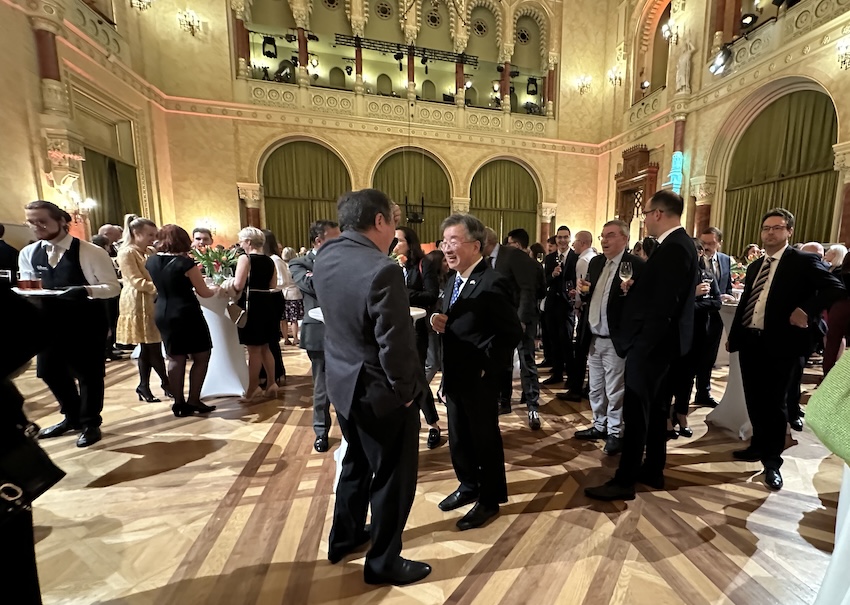

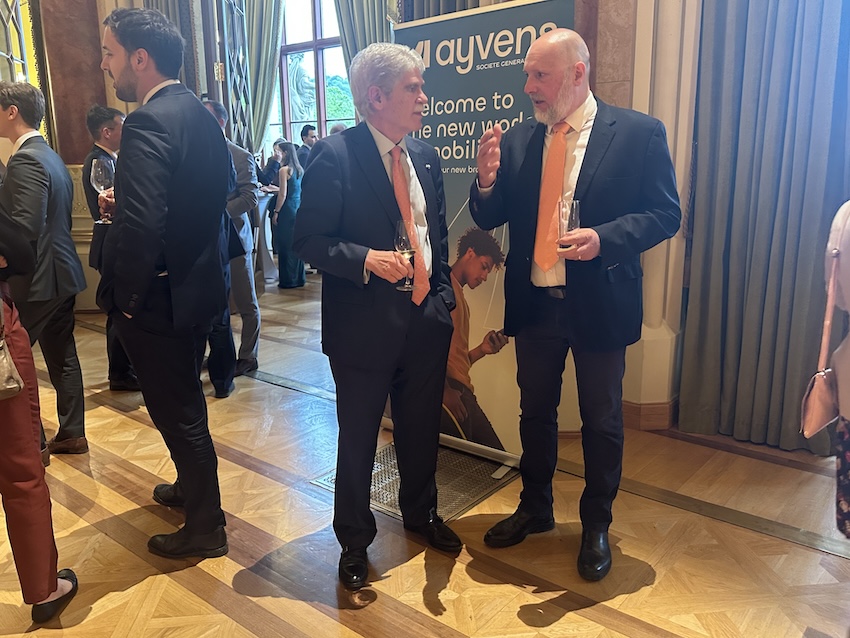
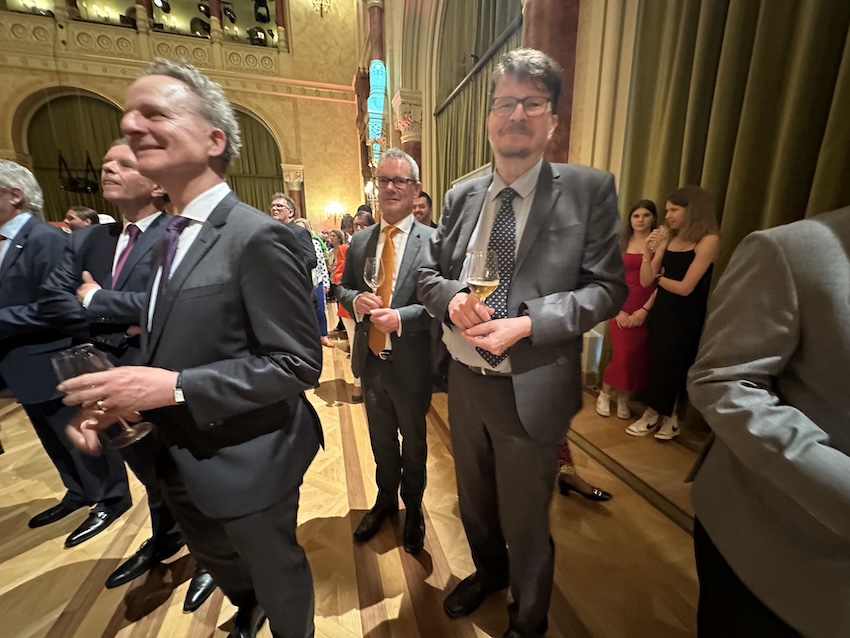
During the reception, an extensive video presentation – prepared by the Embassy of the Netherlands in Hungary – was screened. It highlighted the multifaceted relationship between the Netherlands and Hungary, which dates back to the 17th century. The video featured a rich collection of photographs showcasing the countries’ collaboration in economics, politics, culture, science, and public diplomacy. It also emphasized the Embassy’s ongoing efforts to strengthen cooperation, deepen friendship, foster mutual understanding, and explore new areas of partnership between the two nations and their peoples.
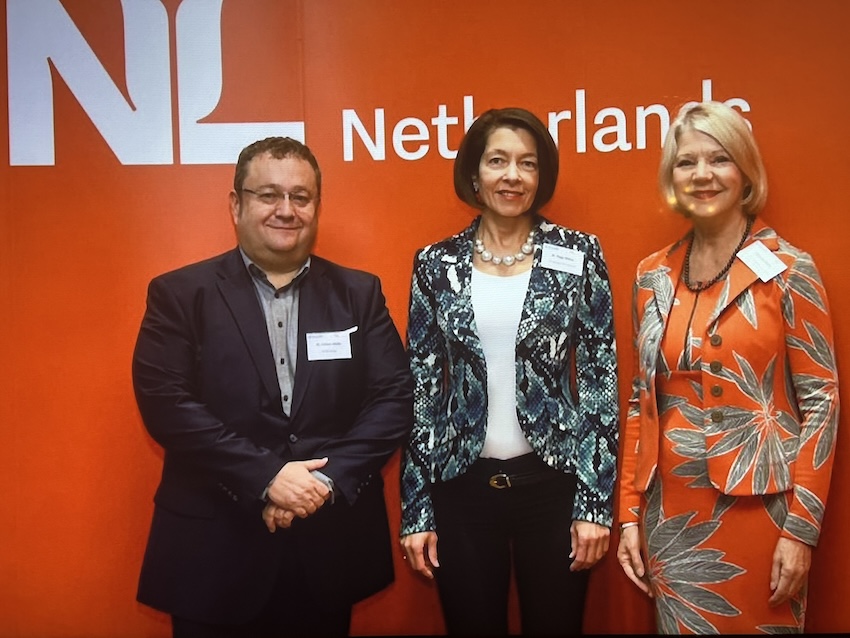
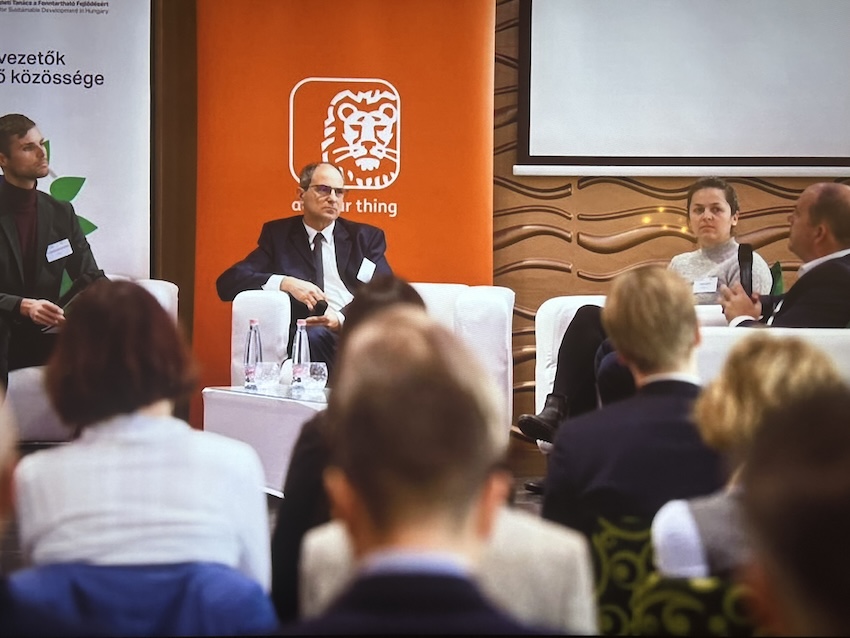
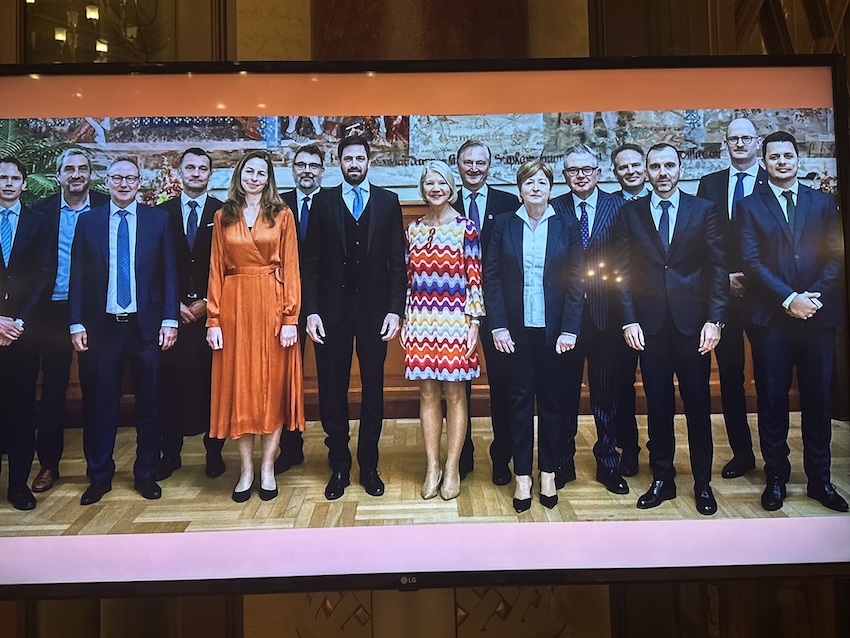
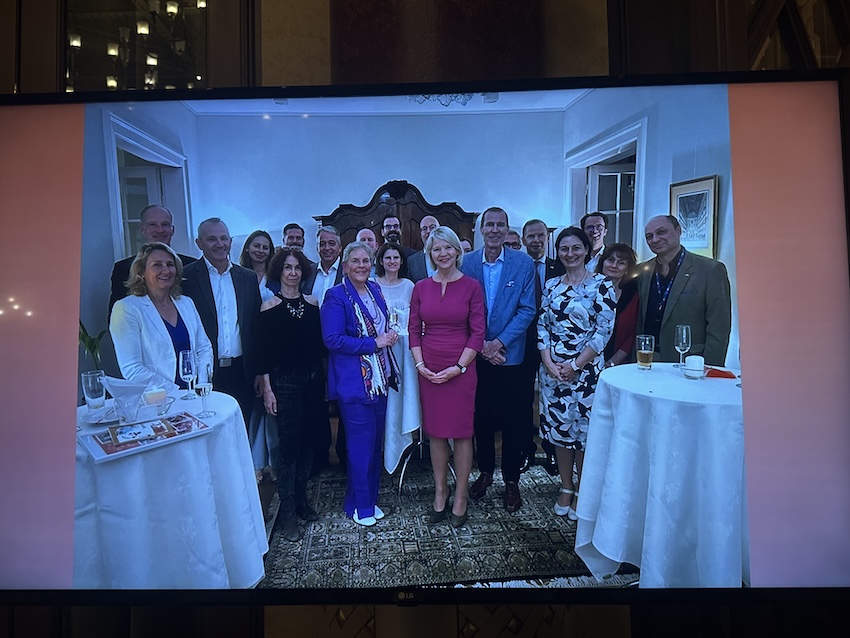
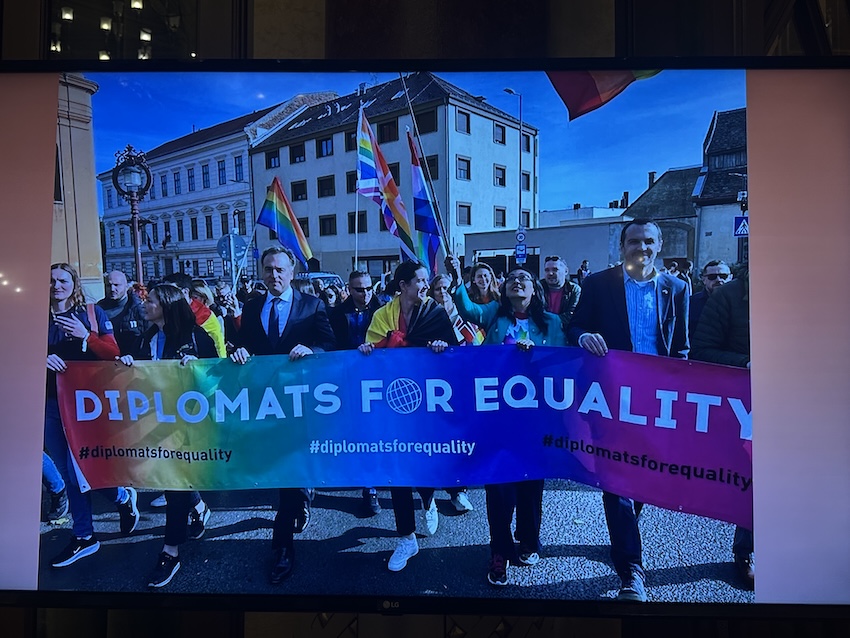
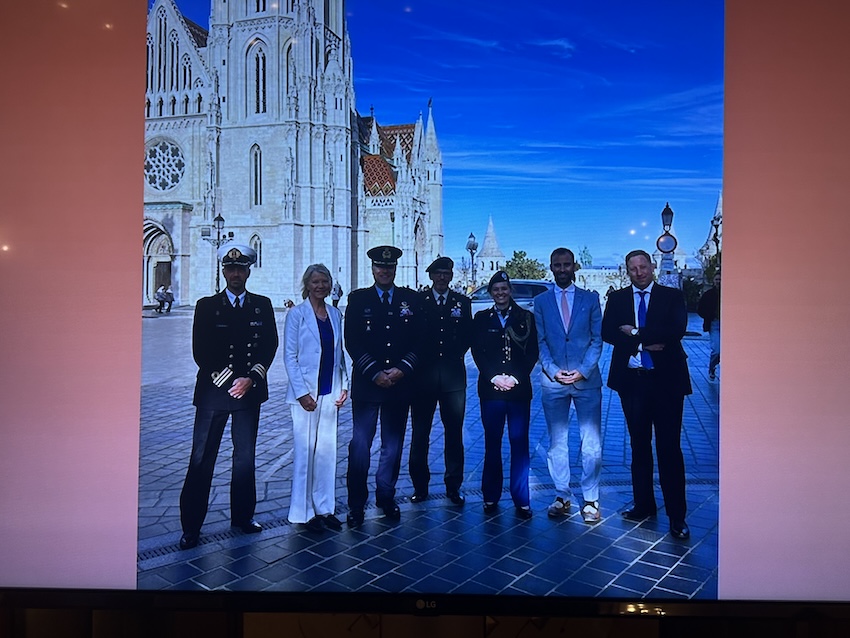
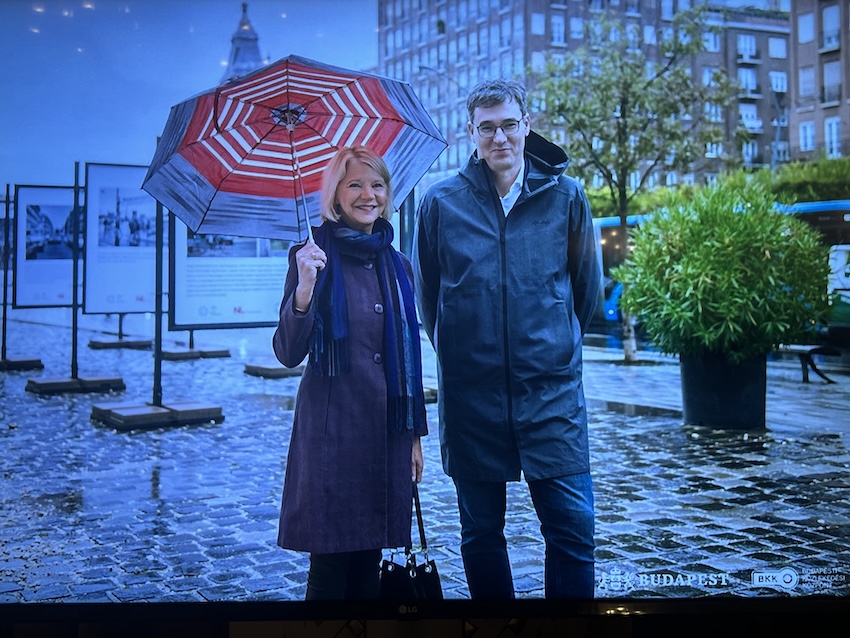

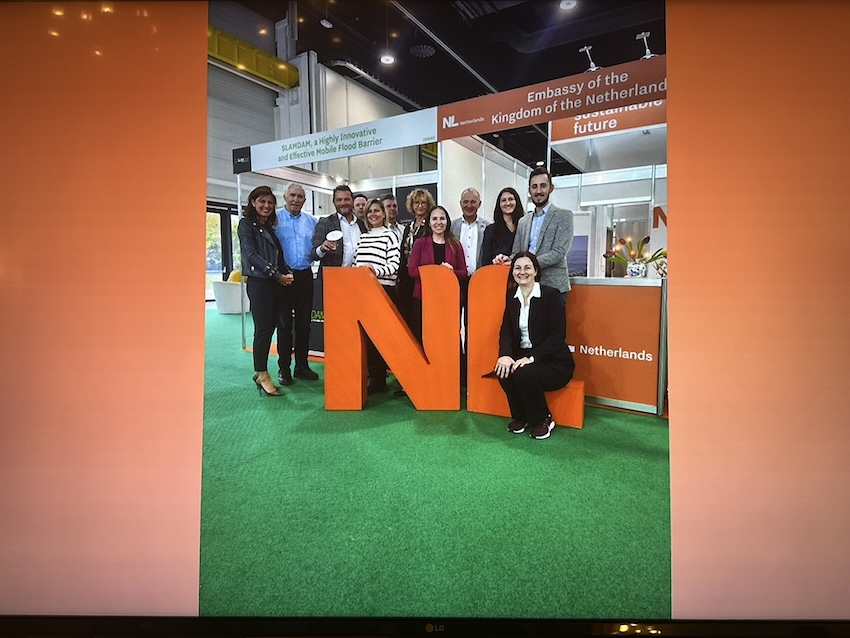
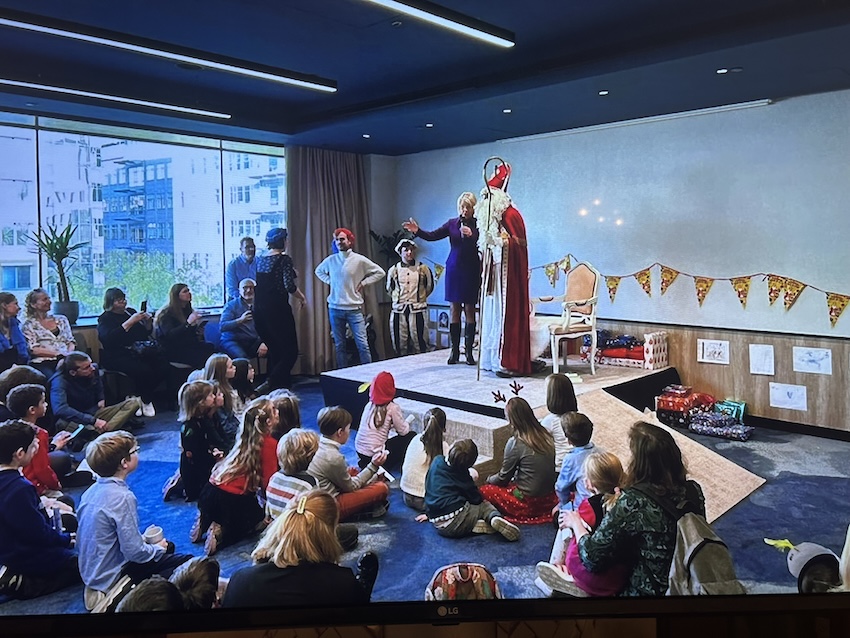
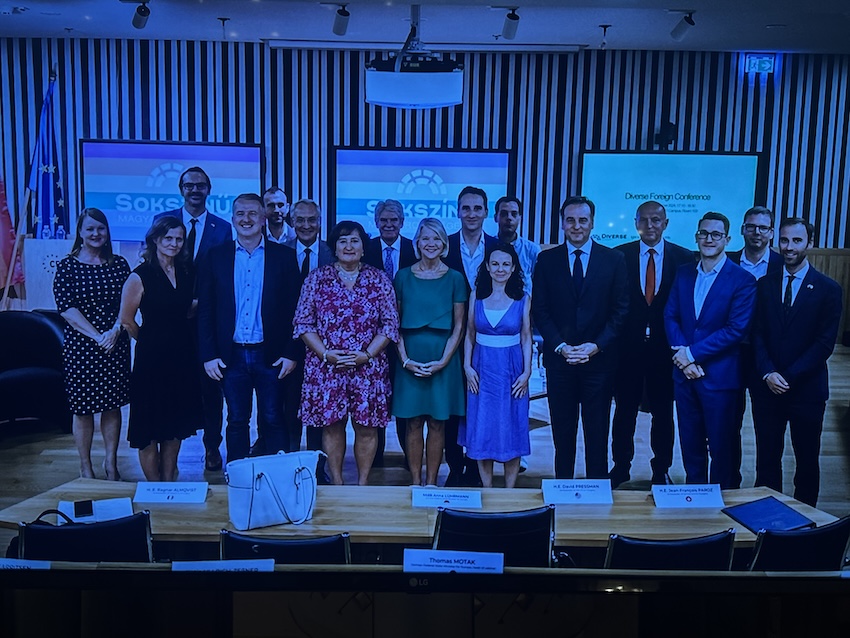
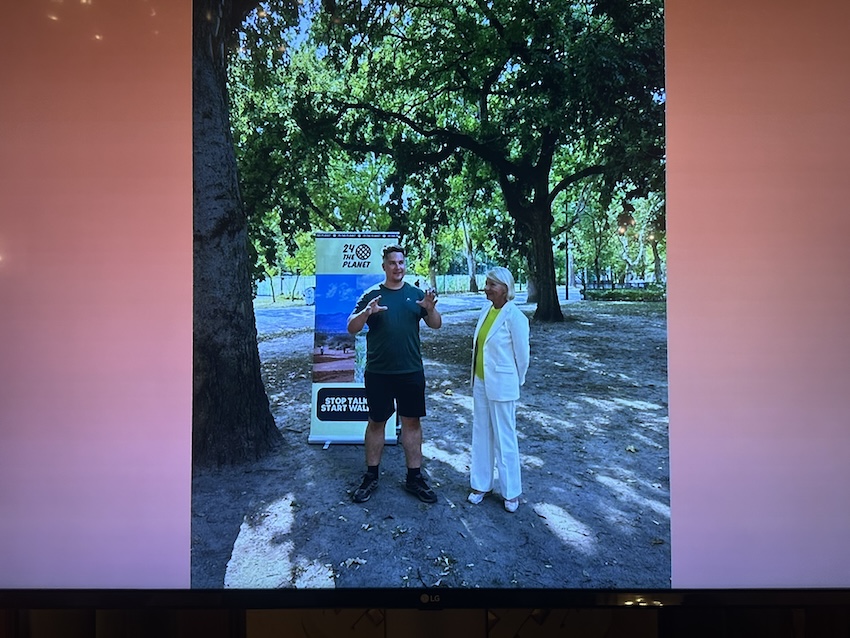
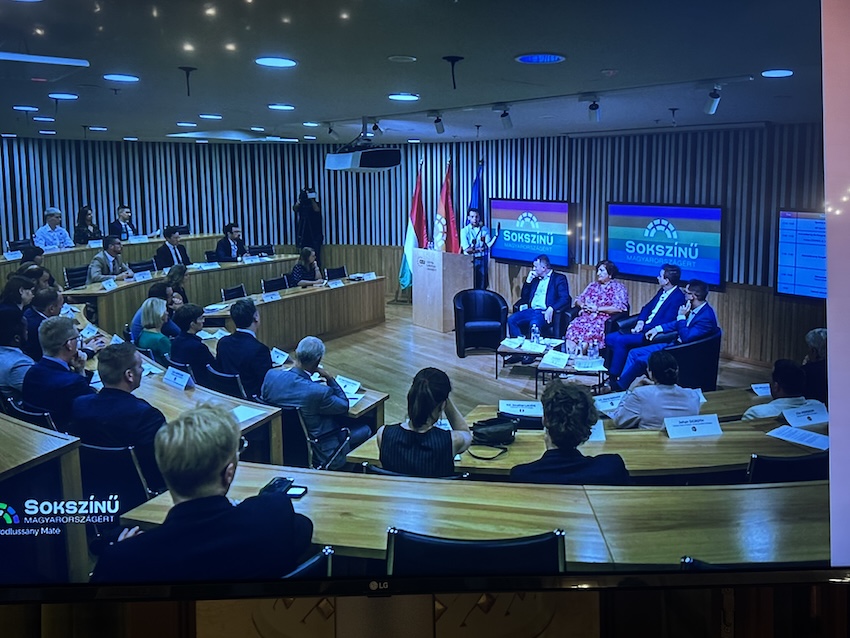
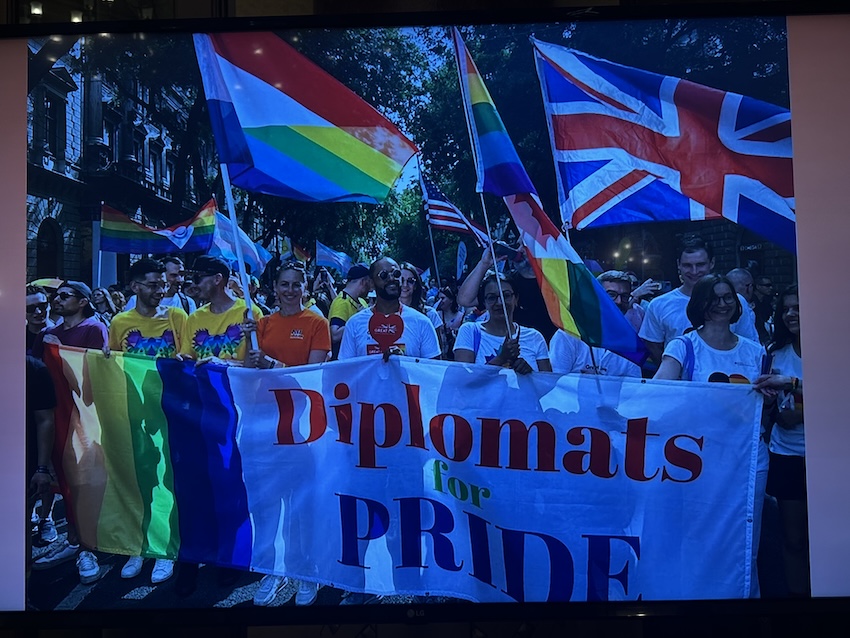

King’s Day – A Cherished Tradition in the Netherlands Rooted in History
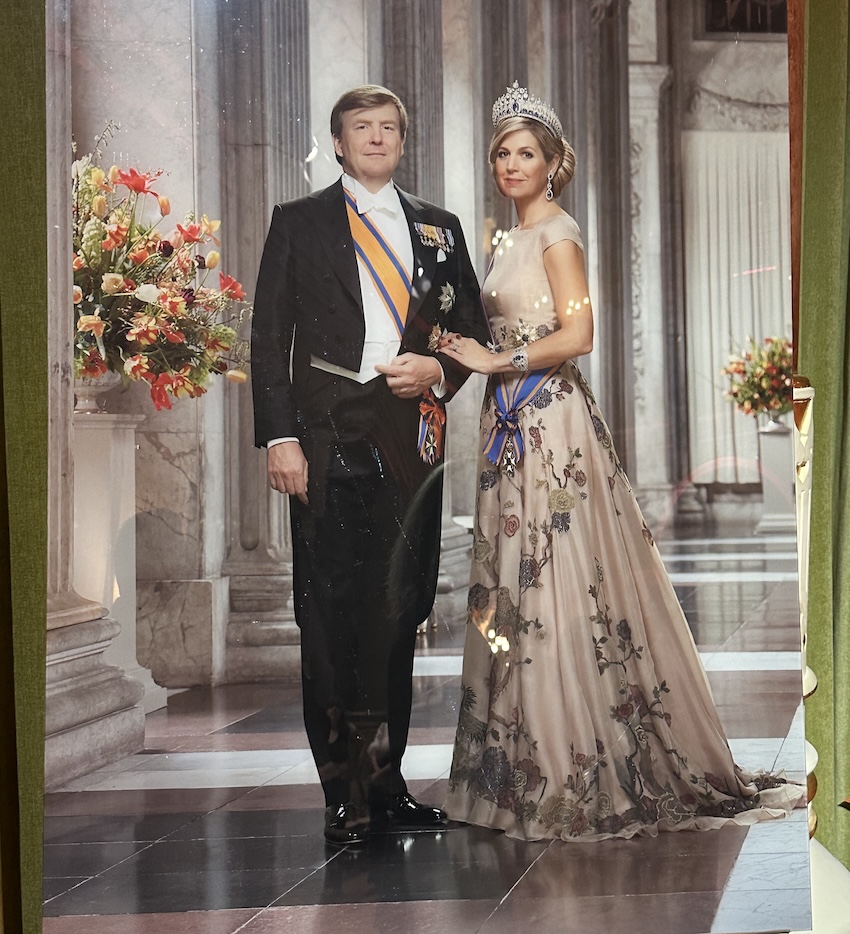
King’s Day (Koningsdag) is the most celebrated national holiday in the Netherlands, held each year on 27 April to honour the birthday of King Willem-Alexander. It is a day of national unity and vibrant celebration, marked by street festivals, flea markets, concerts, and a sea of people dressed in orange, the symbolic colour of Dutch pride.
The tradition began in 1885 as Prinsessedag, commemorating the birthday of Princess Wilhelmina. When she became queen, the holiday was renamed Koninginnedag (Queen’s Day) and initially celebrated on 31 August. Under Queen Juliana, the date was changed to 30 April. In 2013, following the accession of Willem-Alexander, the first male monarch in over a century, the celebration became Koningsdag and was shifted to 27 April, his birthday.
The Dutch Royal Family, the House of Orange-Nassau, plays a central role in national life. Though the monarchy is ceremonial in nature, it represents continuity, unity, and tradition, serving as a unifying symbol above politics and embodying Dutch national identity at home and abroad.
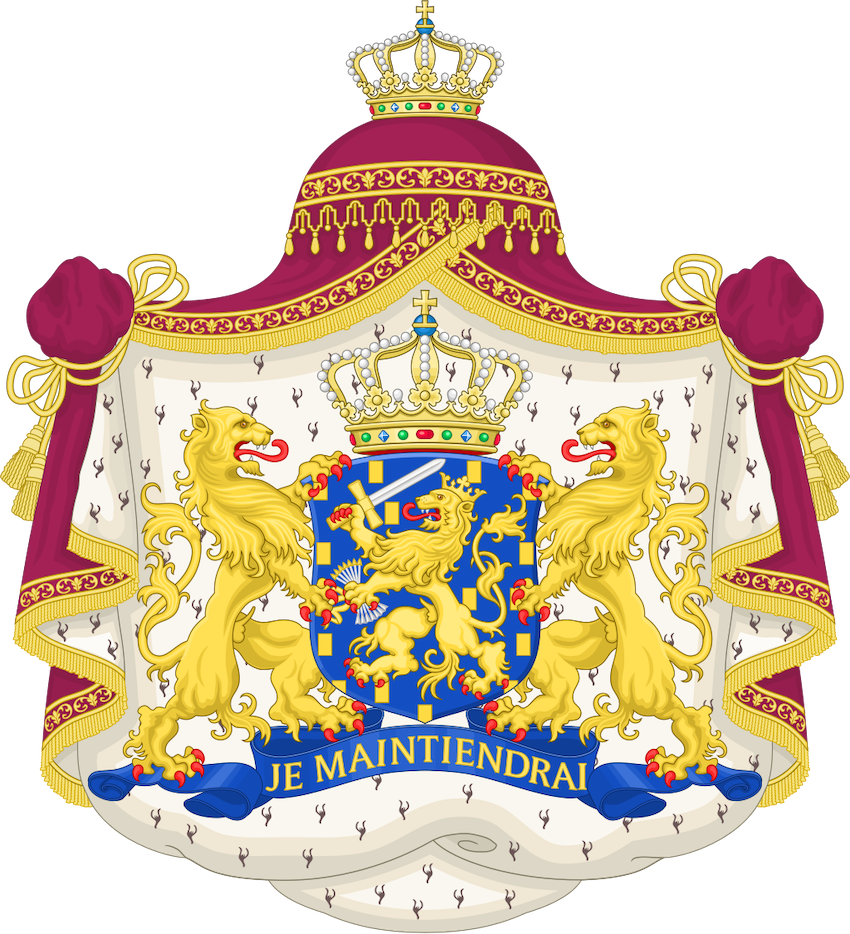
The widespread use of the colour orange stems from the royal family’s name. Willem of Orange (1533–1584), founder of the House of Orange-Nassau and the independent Dutch Republic, led the revolt against Spanish rule in the Eighty Years’ War. He is revered as the “Father of the Fatherland” (Vader des Vaderlands) for his pivotal role in securing Dutch independence. The motto “Je maintiendrai” (“I shall maintain”) and the emblem of the bugle horn – both present in the House of Orange’s coat of arms – originate from him. These symbols reflect his steadfast commitment to honour, virtue, and lawful order, service to the country, and its people. His leadership laid the foundation for Dutch independence. The colour orange, initially associated with his reign, later became a symbol of resistance during WWII and today stands for Dutch identity, resilience, pride and solidarity.
On King’s Day, wearing orange is more than a tradition, it is a national statement. From festive drinks like Orange Bitter to orange-themed outfits and decorations, the country unites in a joyful show of heritage and community spirit. Although its form has evolved over time, the essence of King’s Day remains unchanged: a celebration of freedom, history, and the enduring bond between the Dutch people and their monarch.
Source: Embassy of the Netherlands in Budapest
Photos by the Office of Minister János Bóka, and Diplomatic Press Agency


